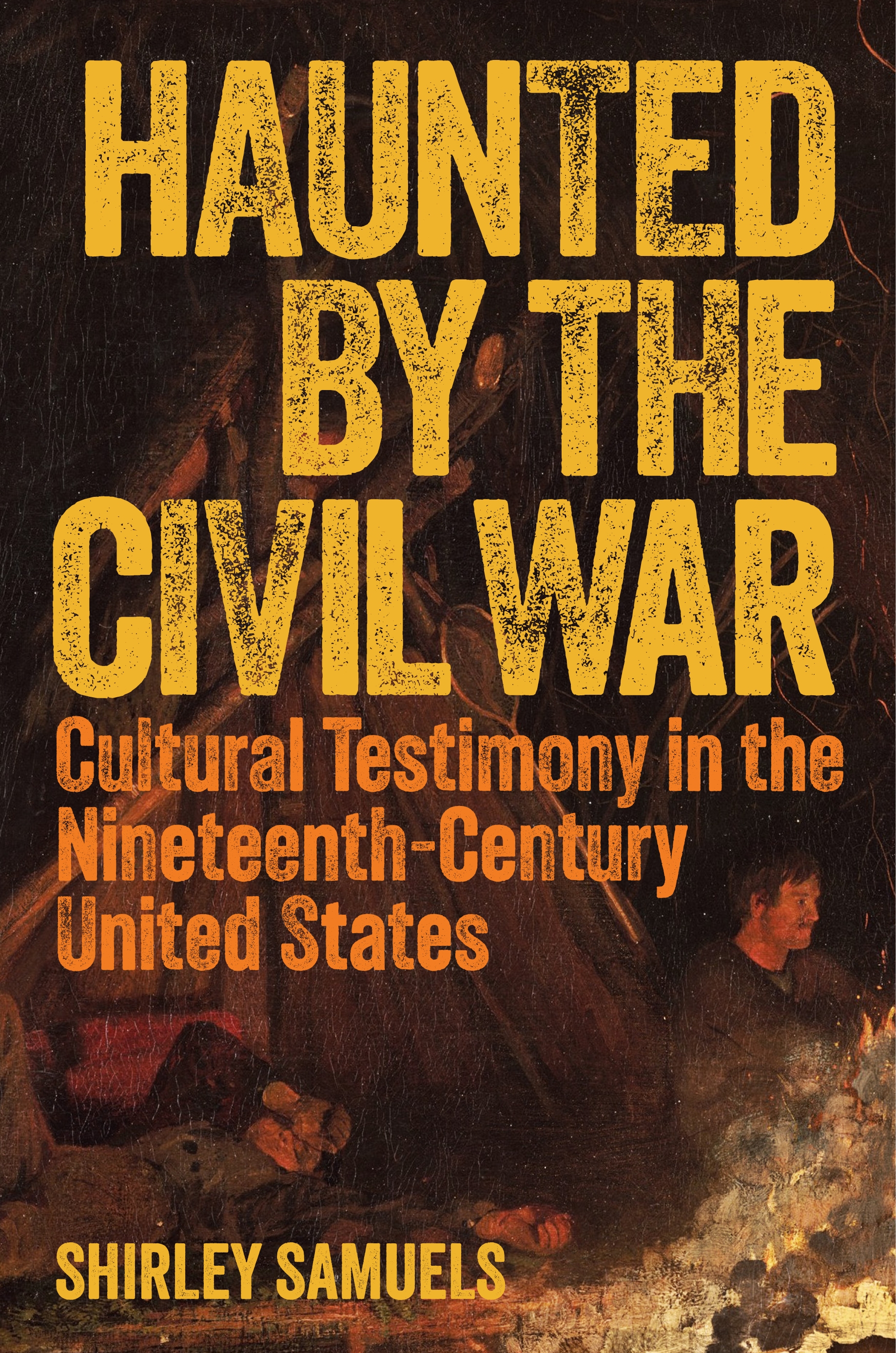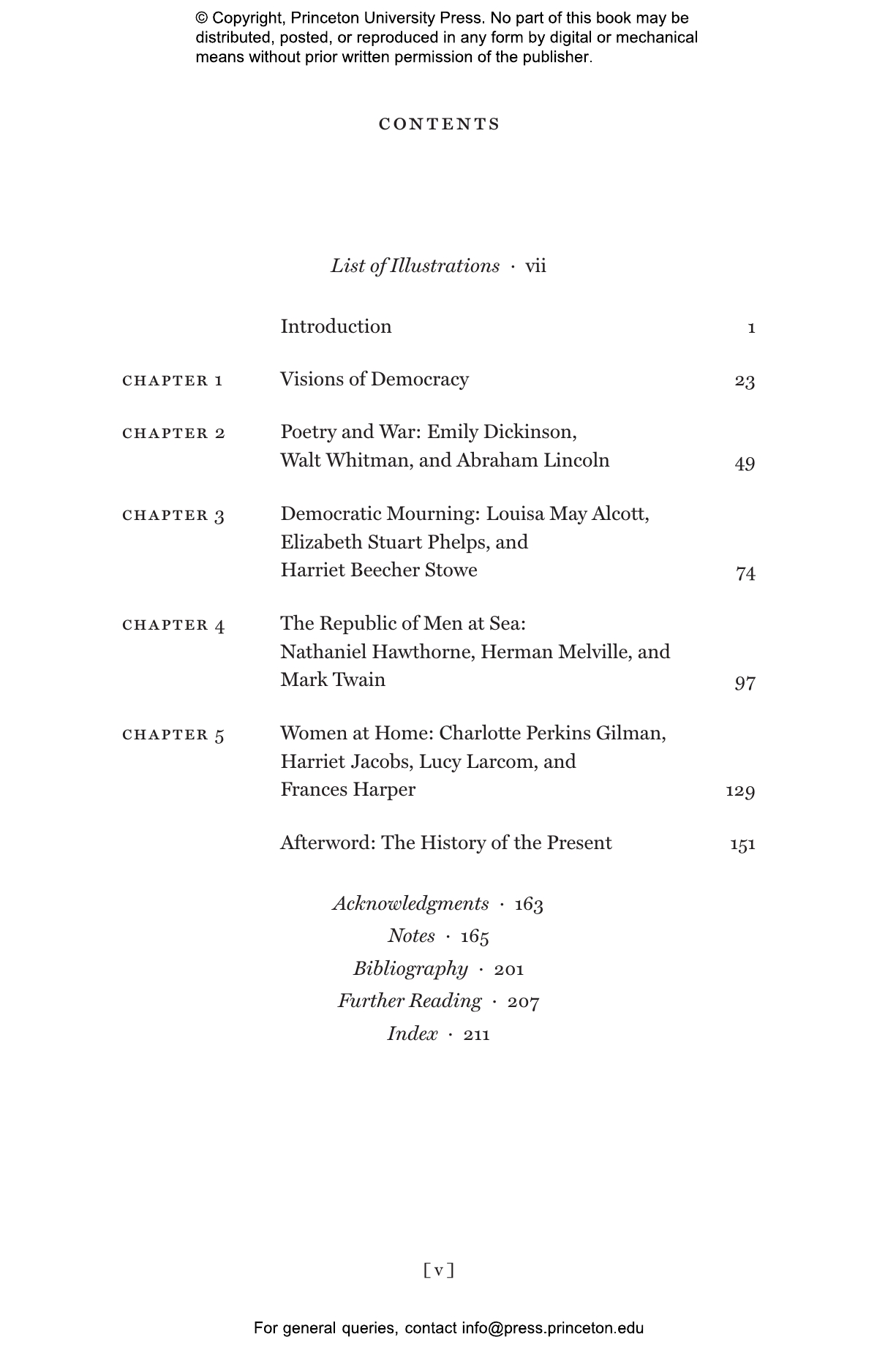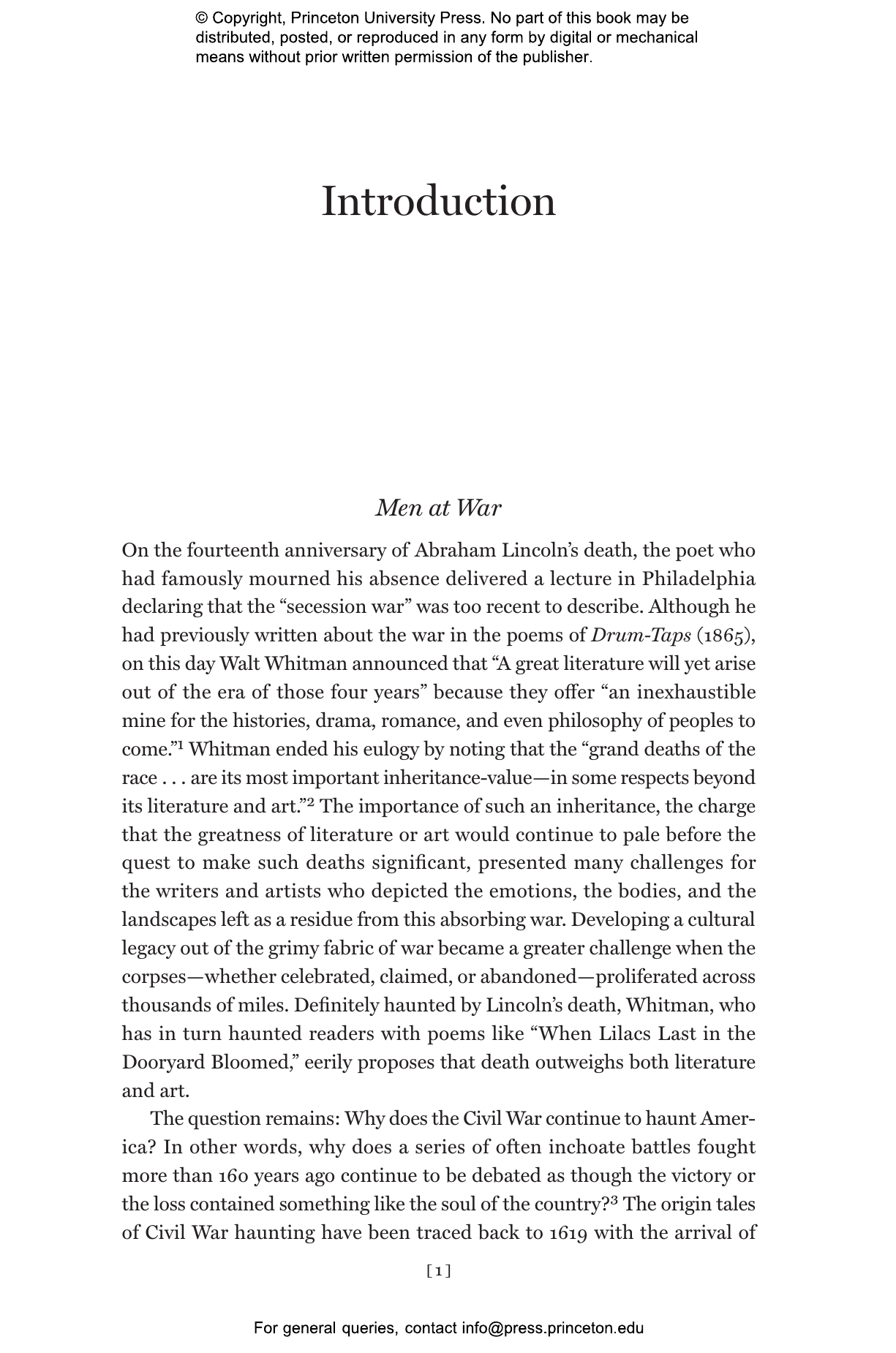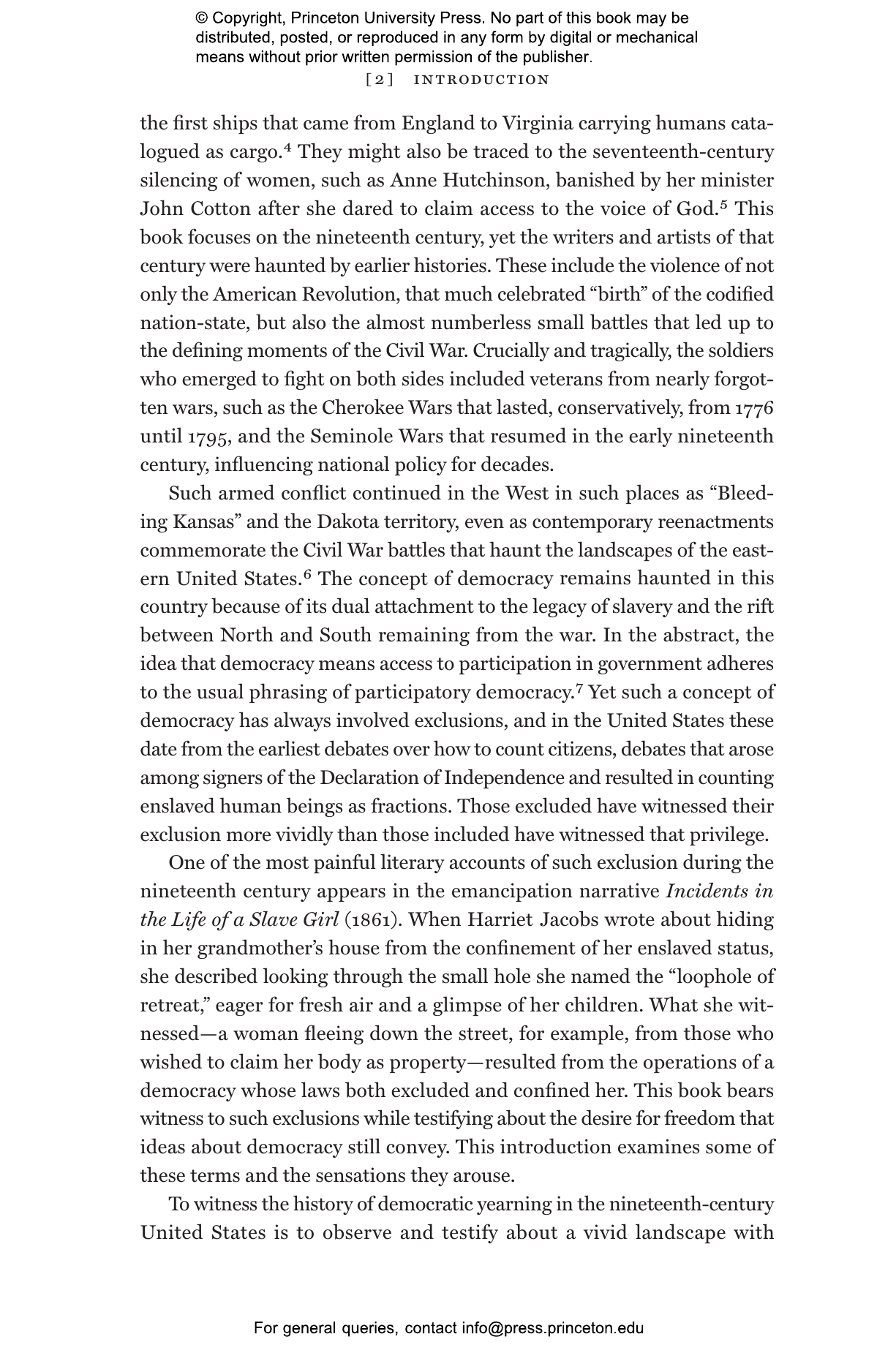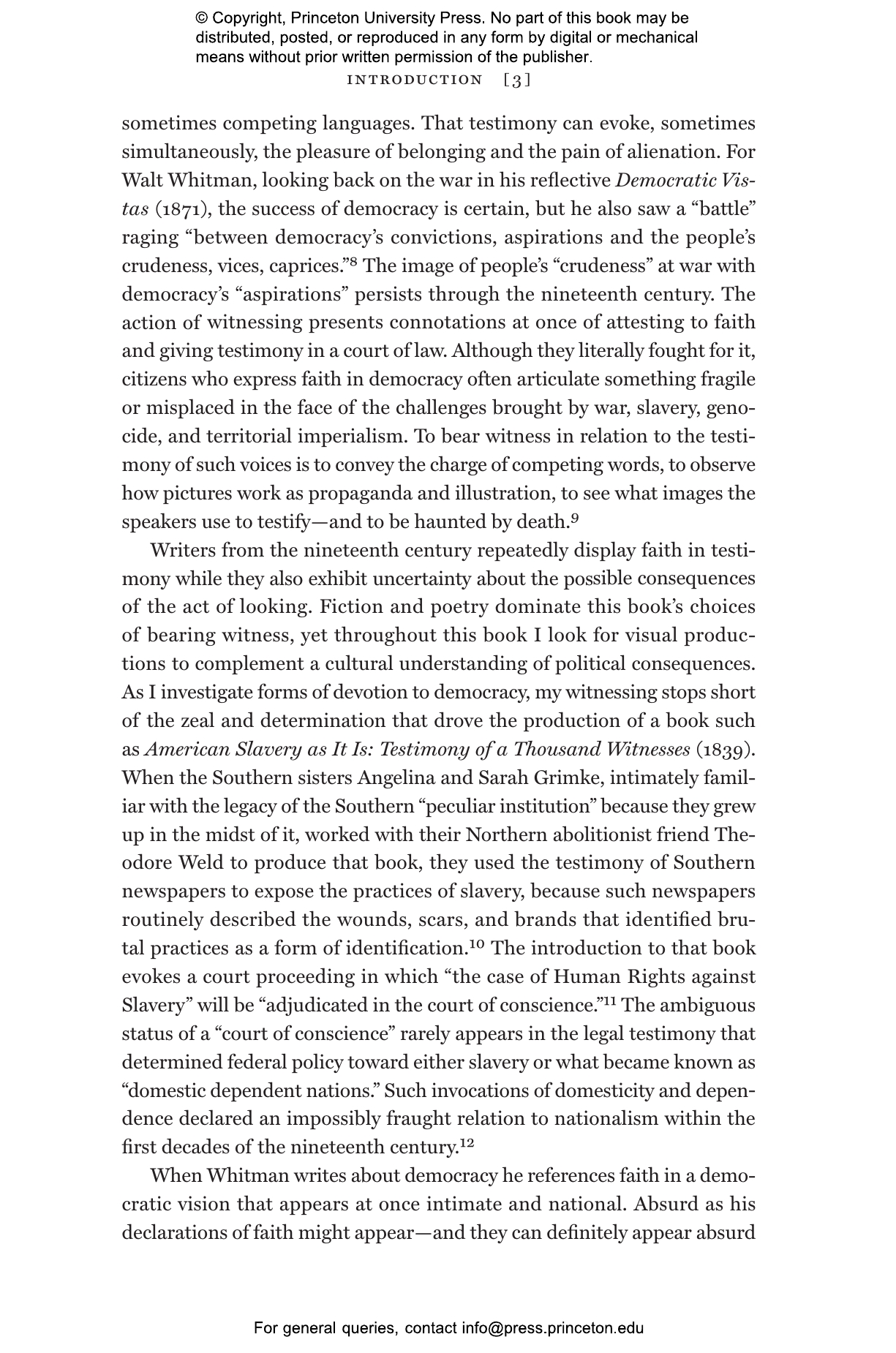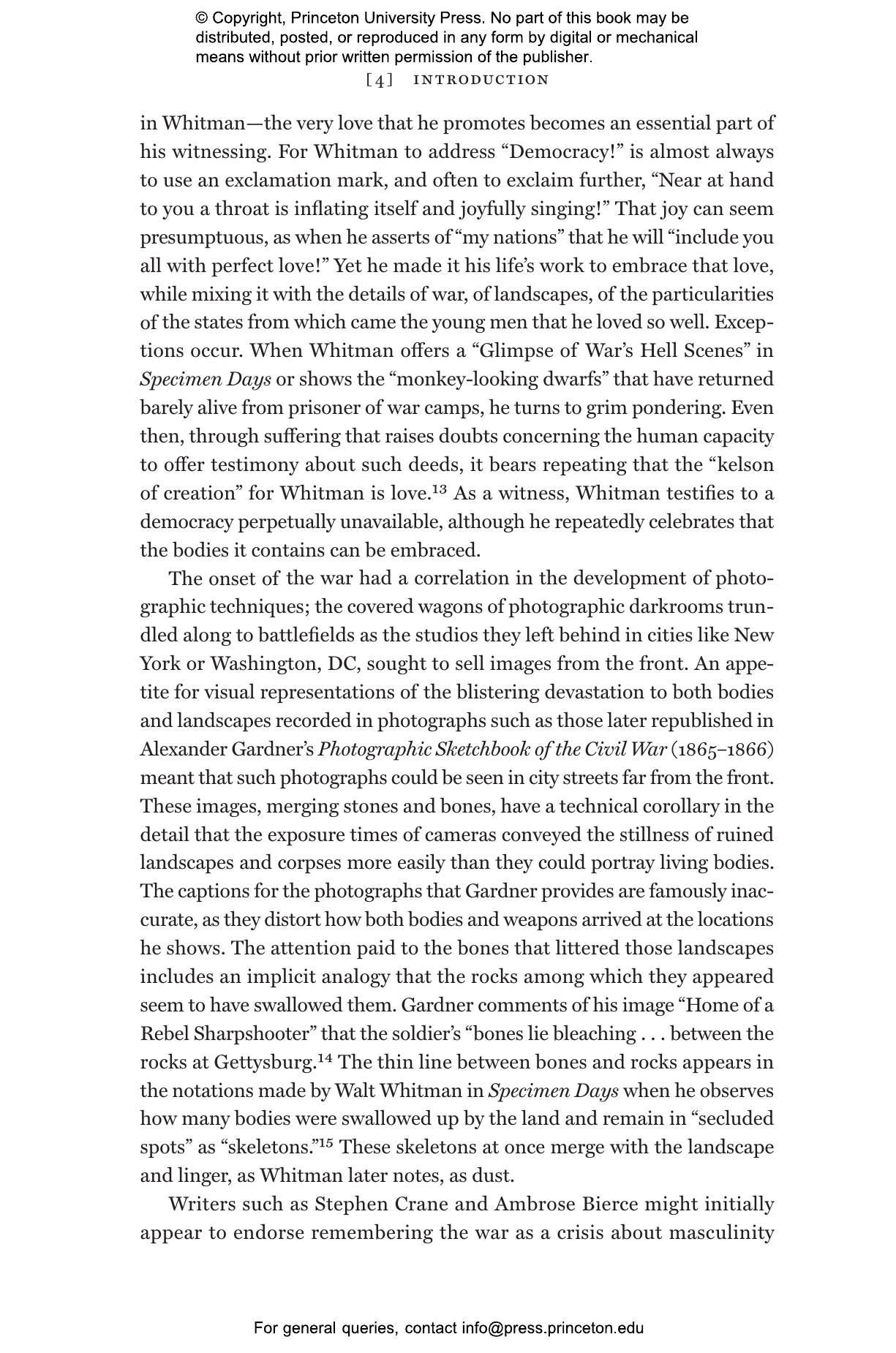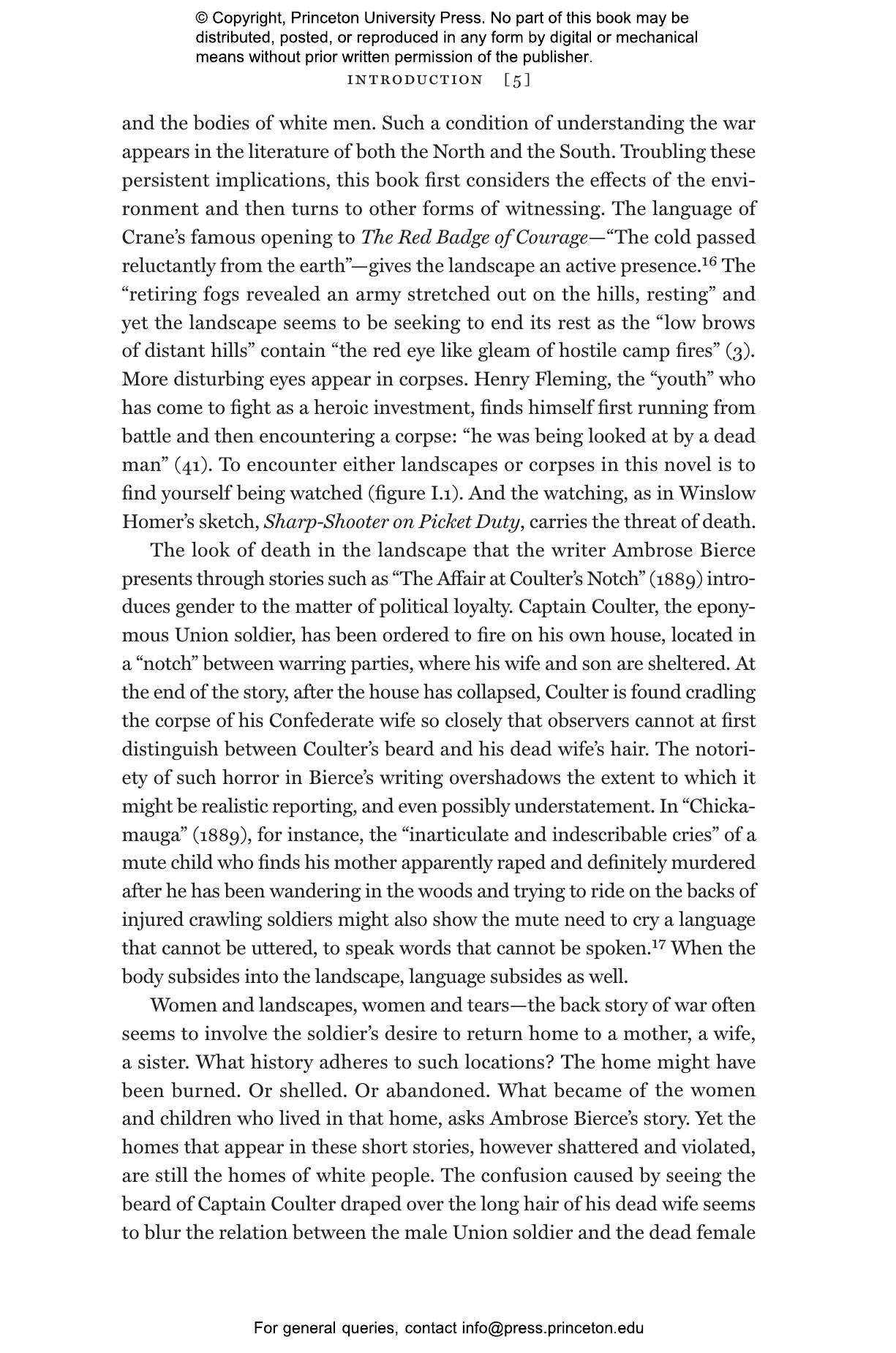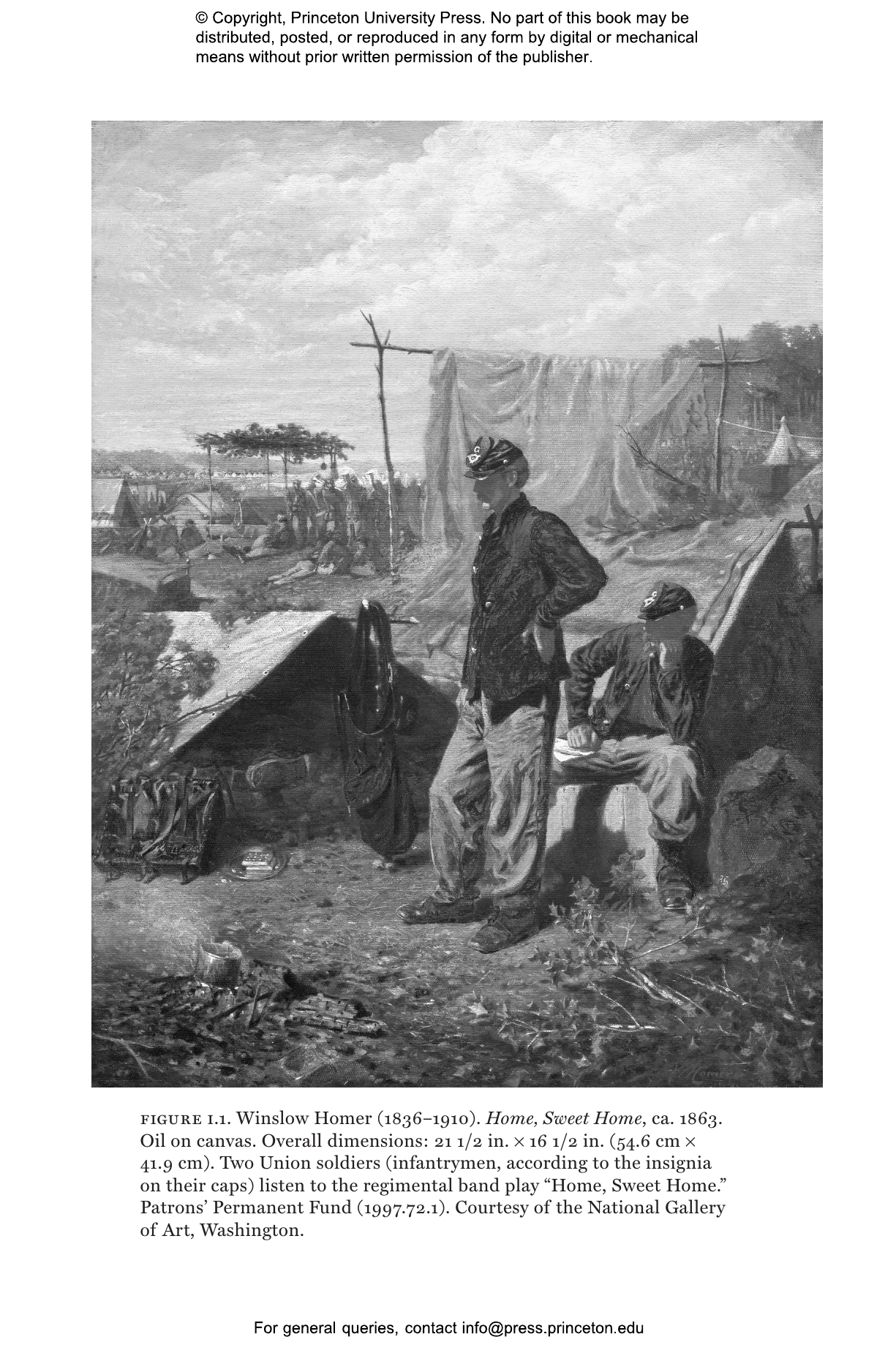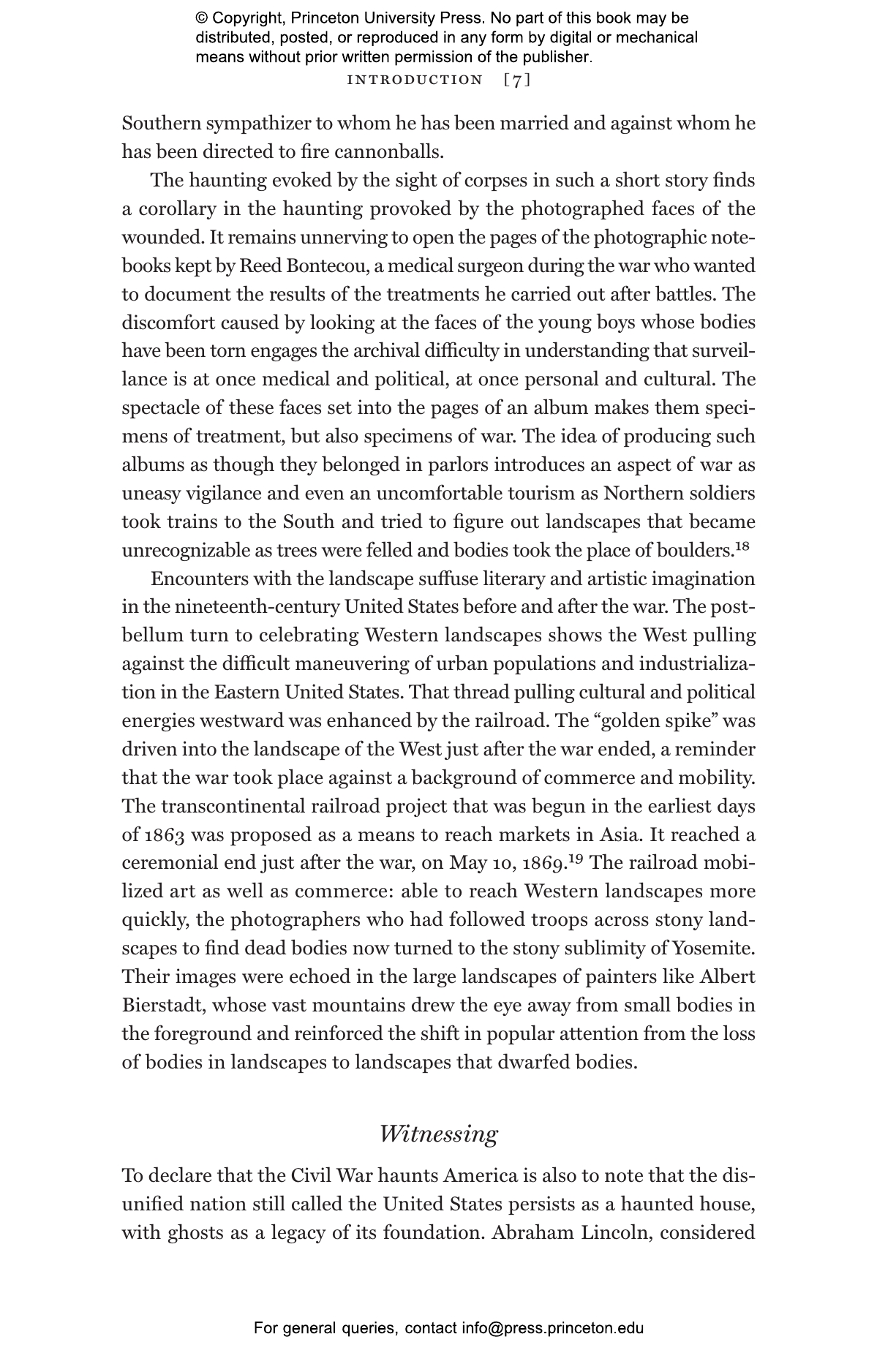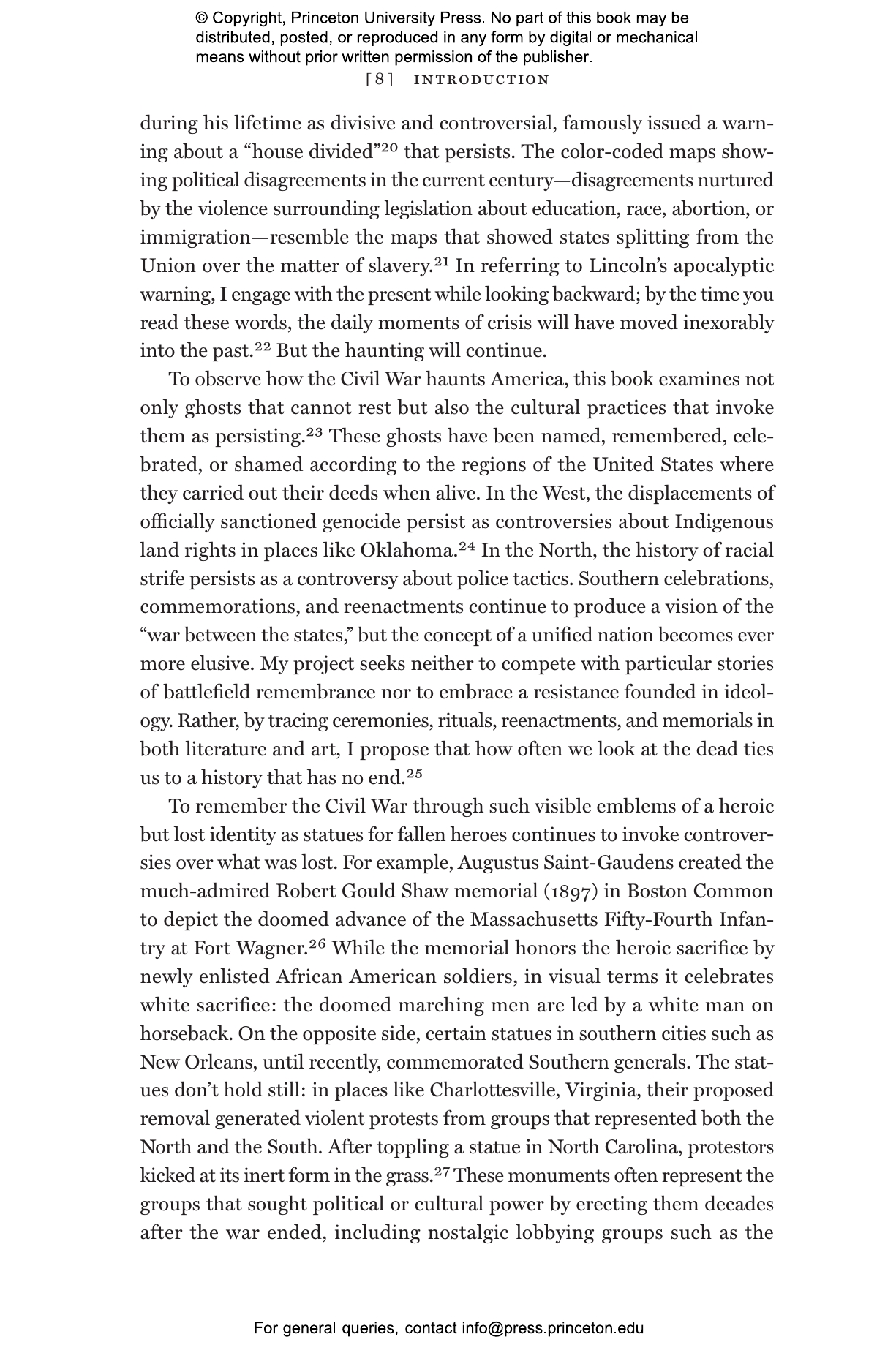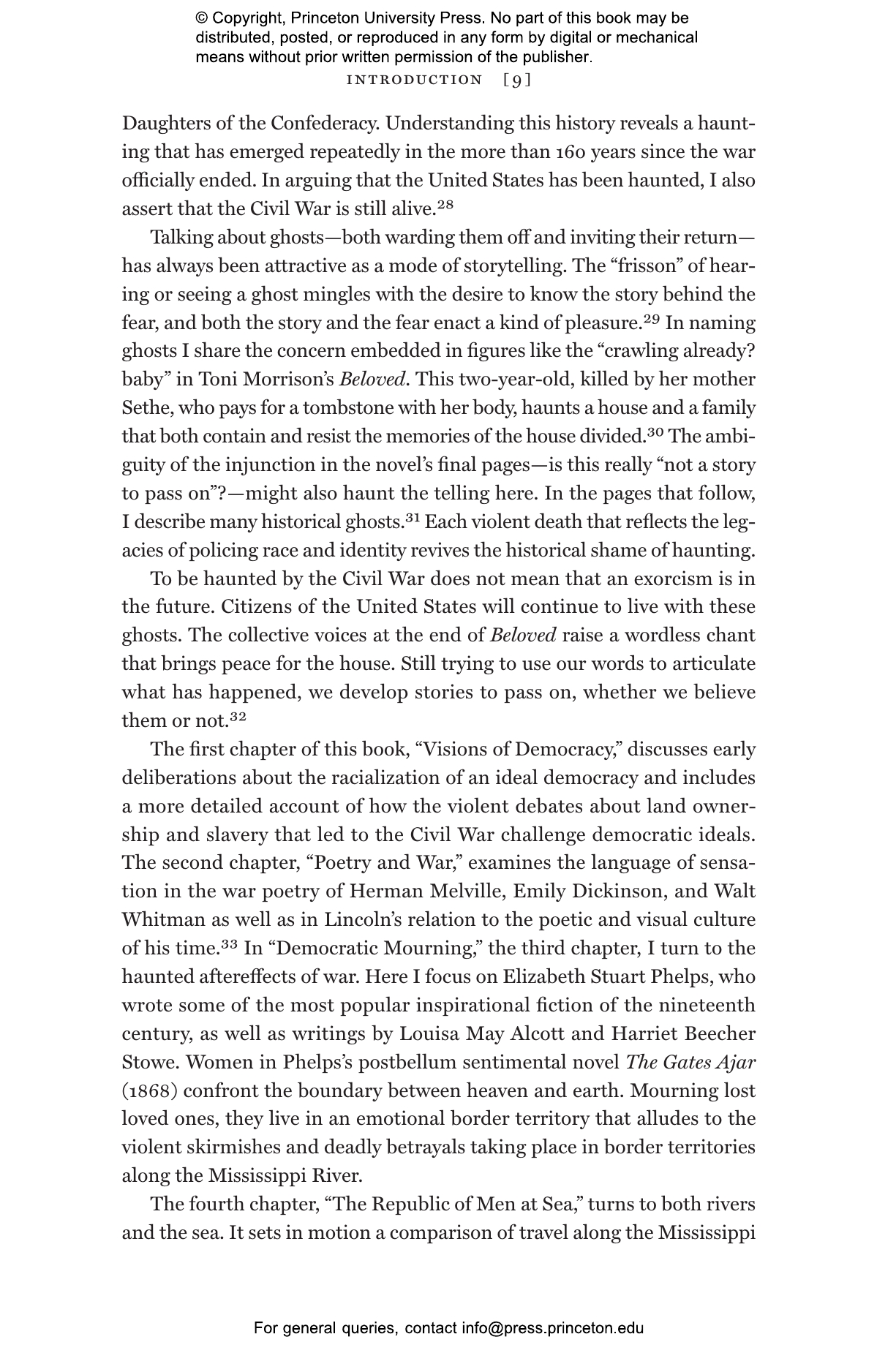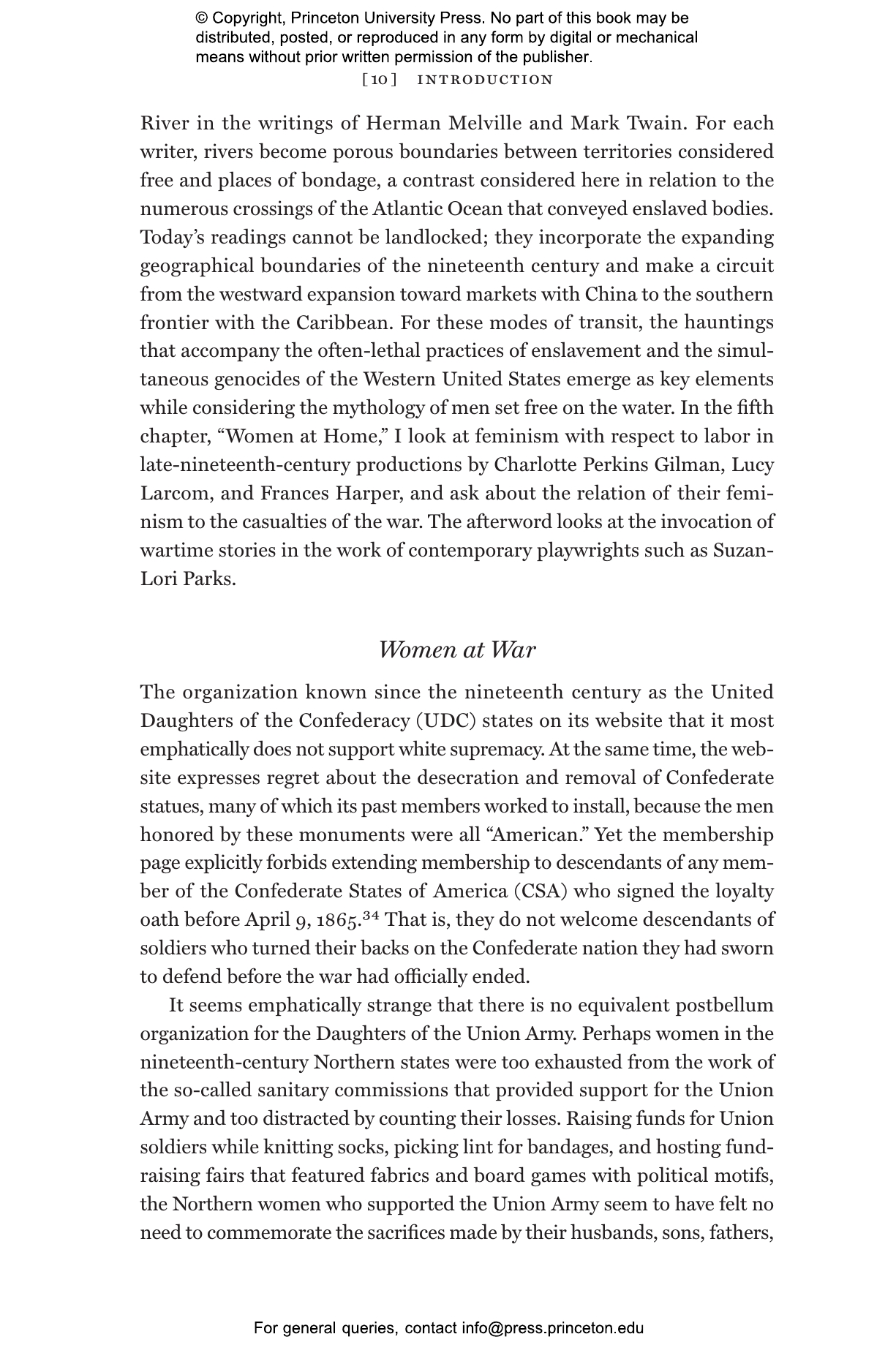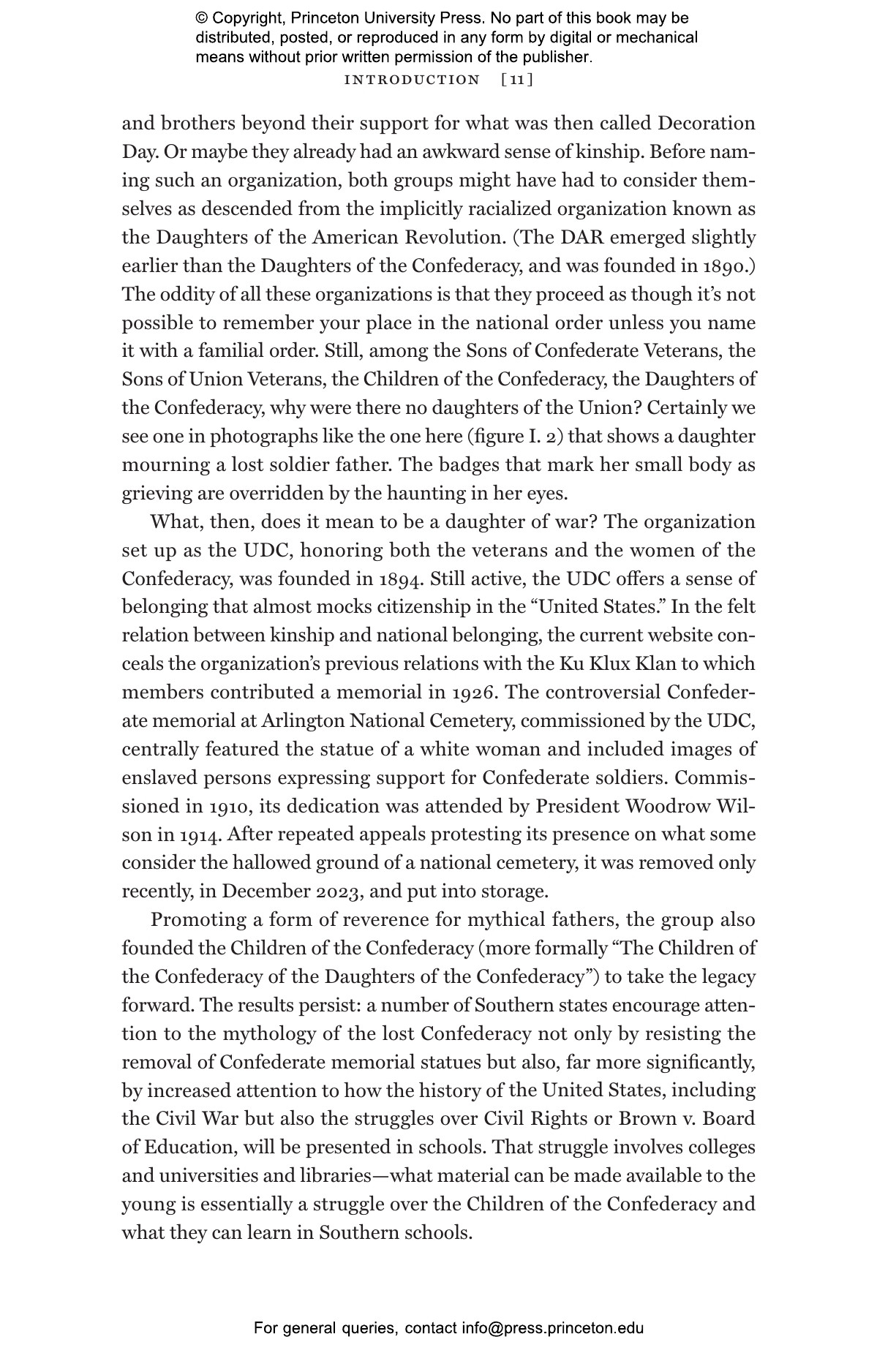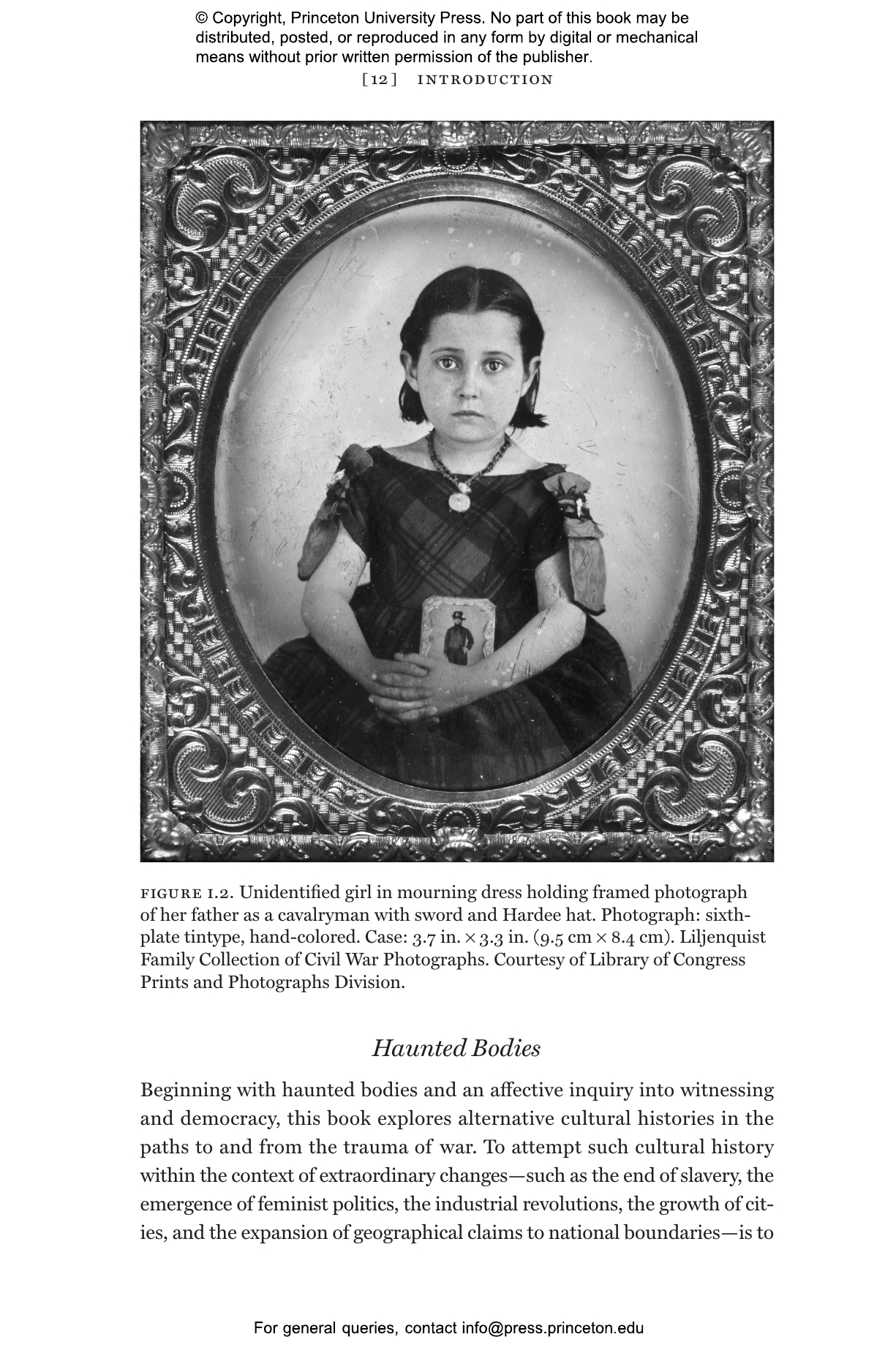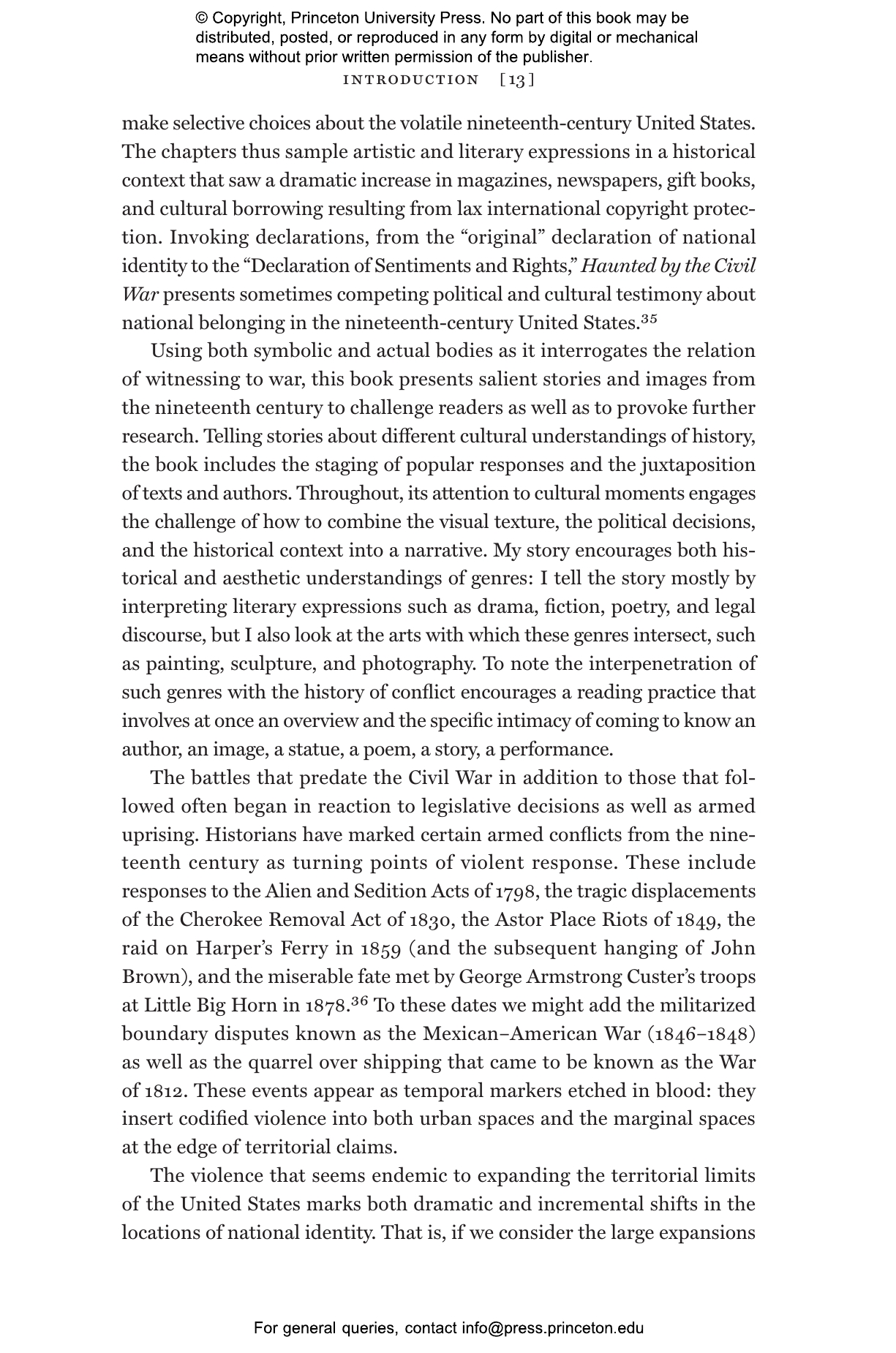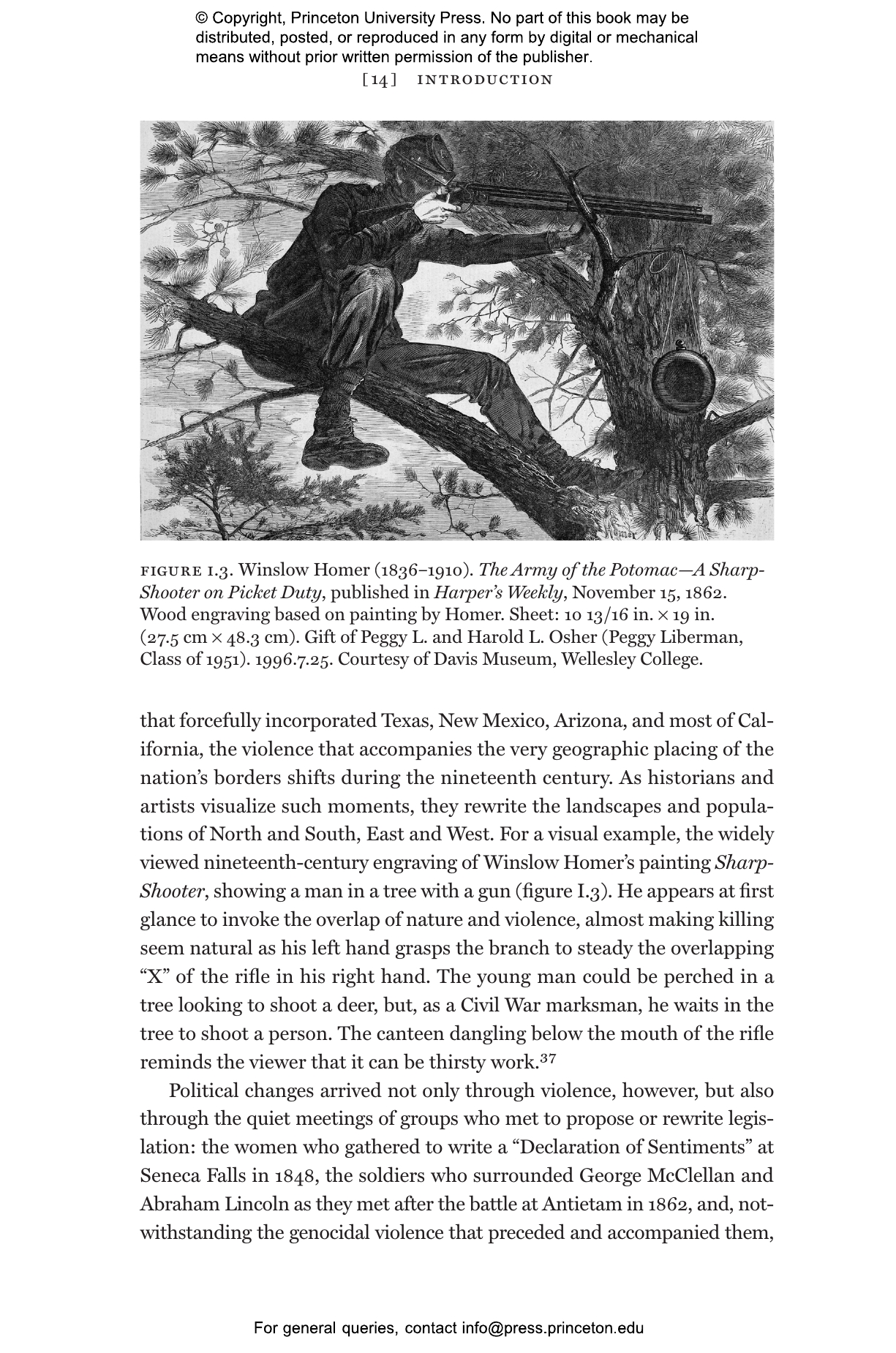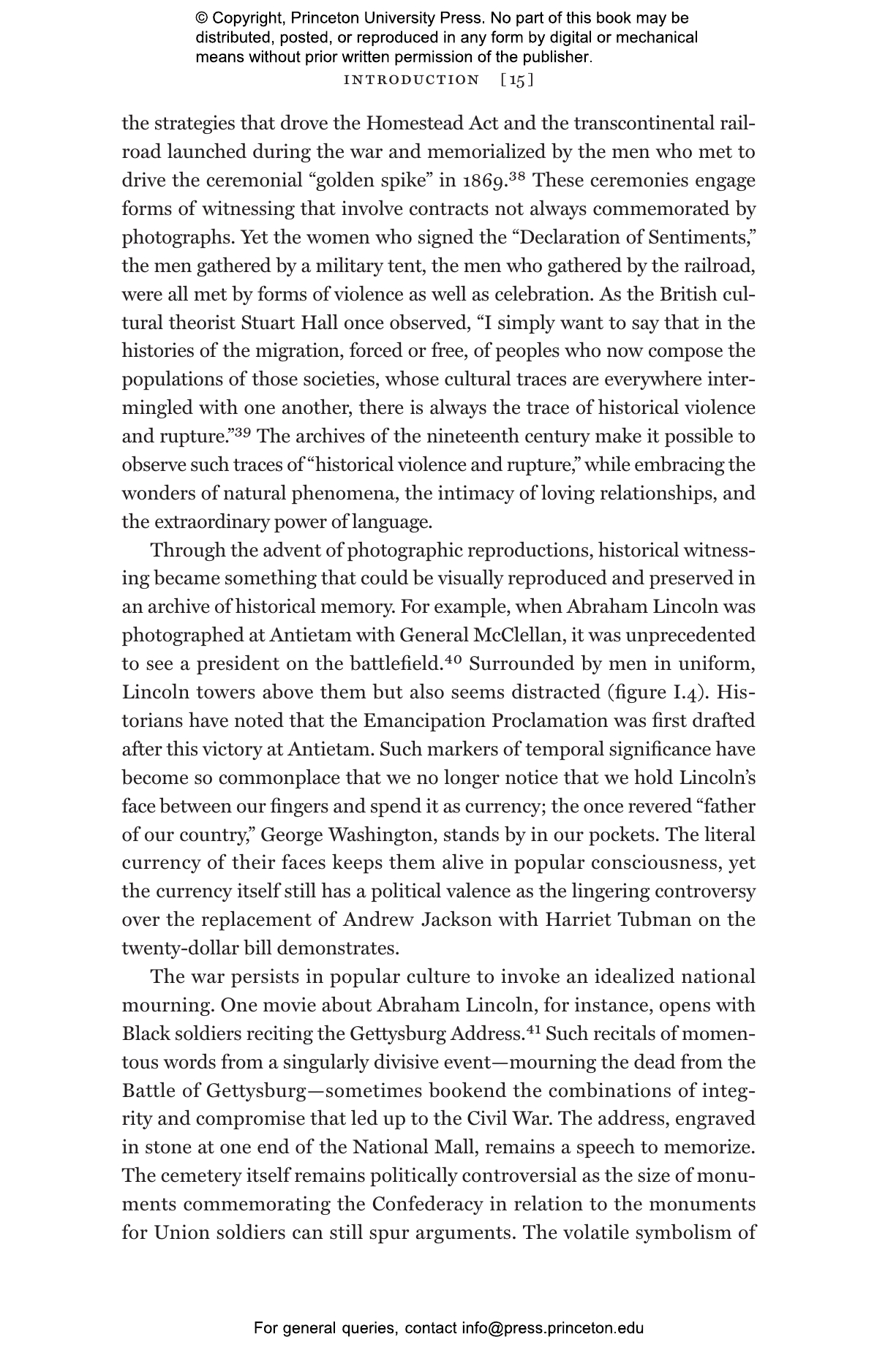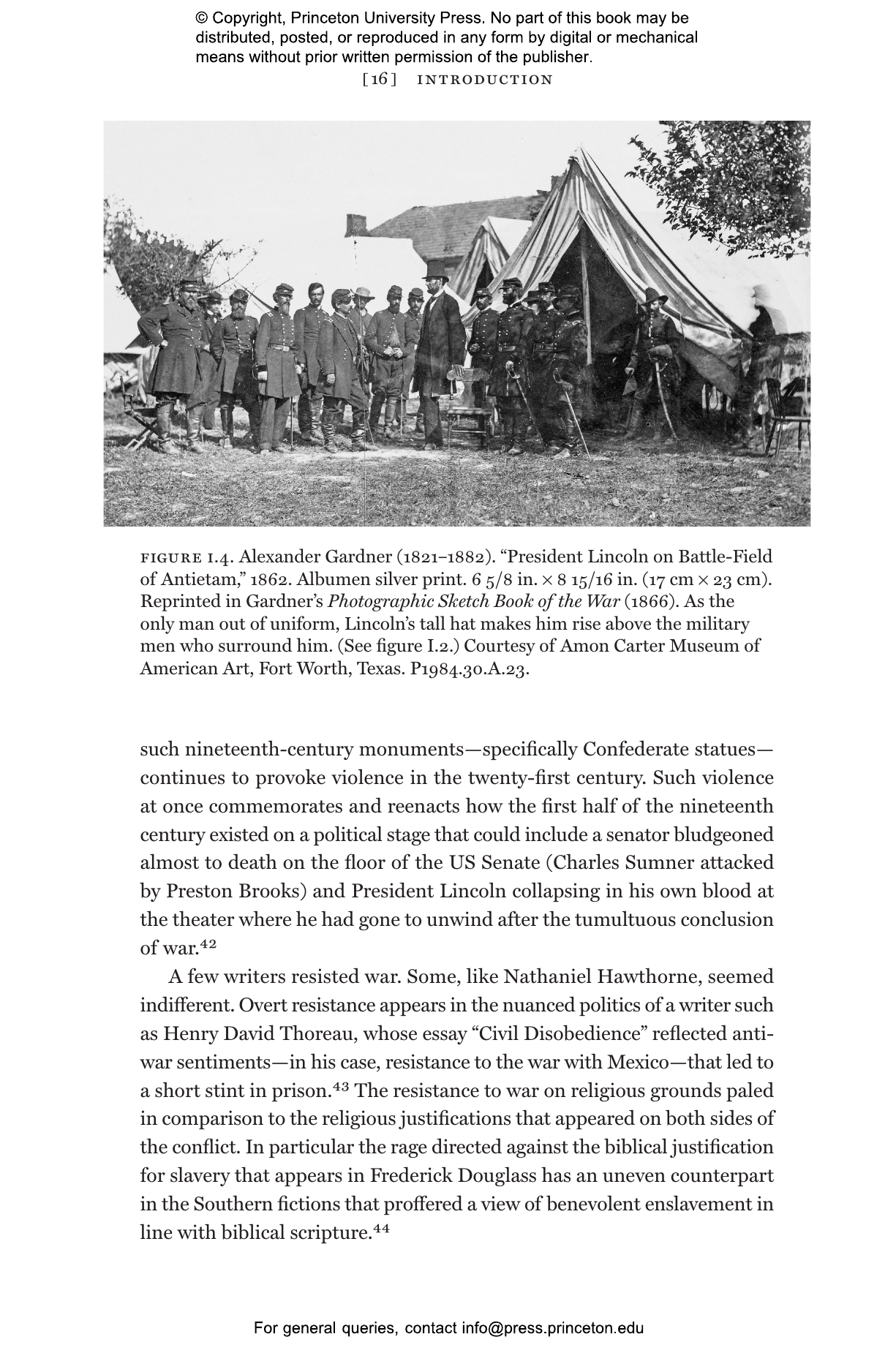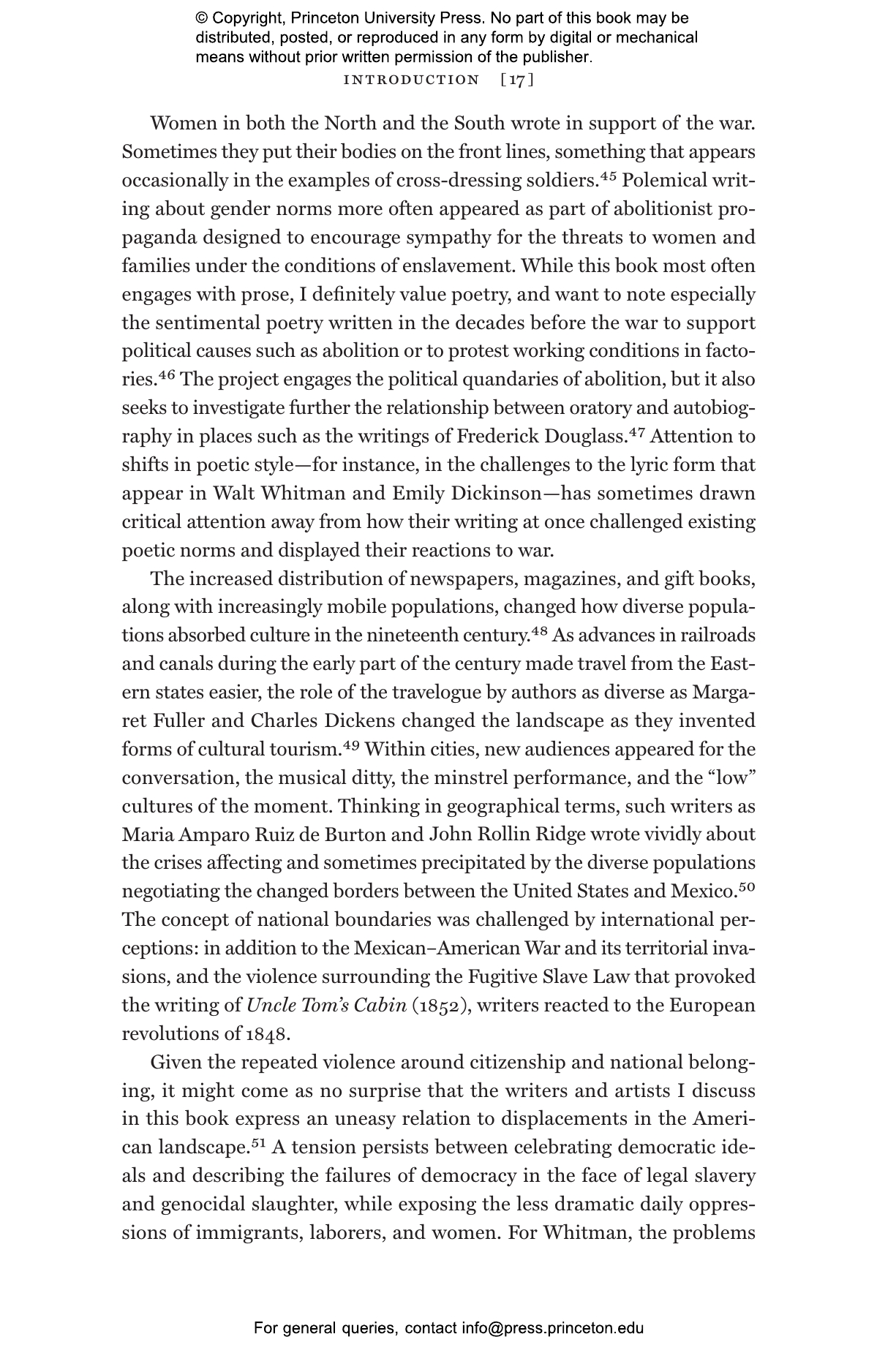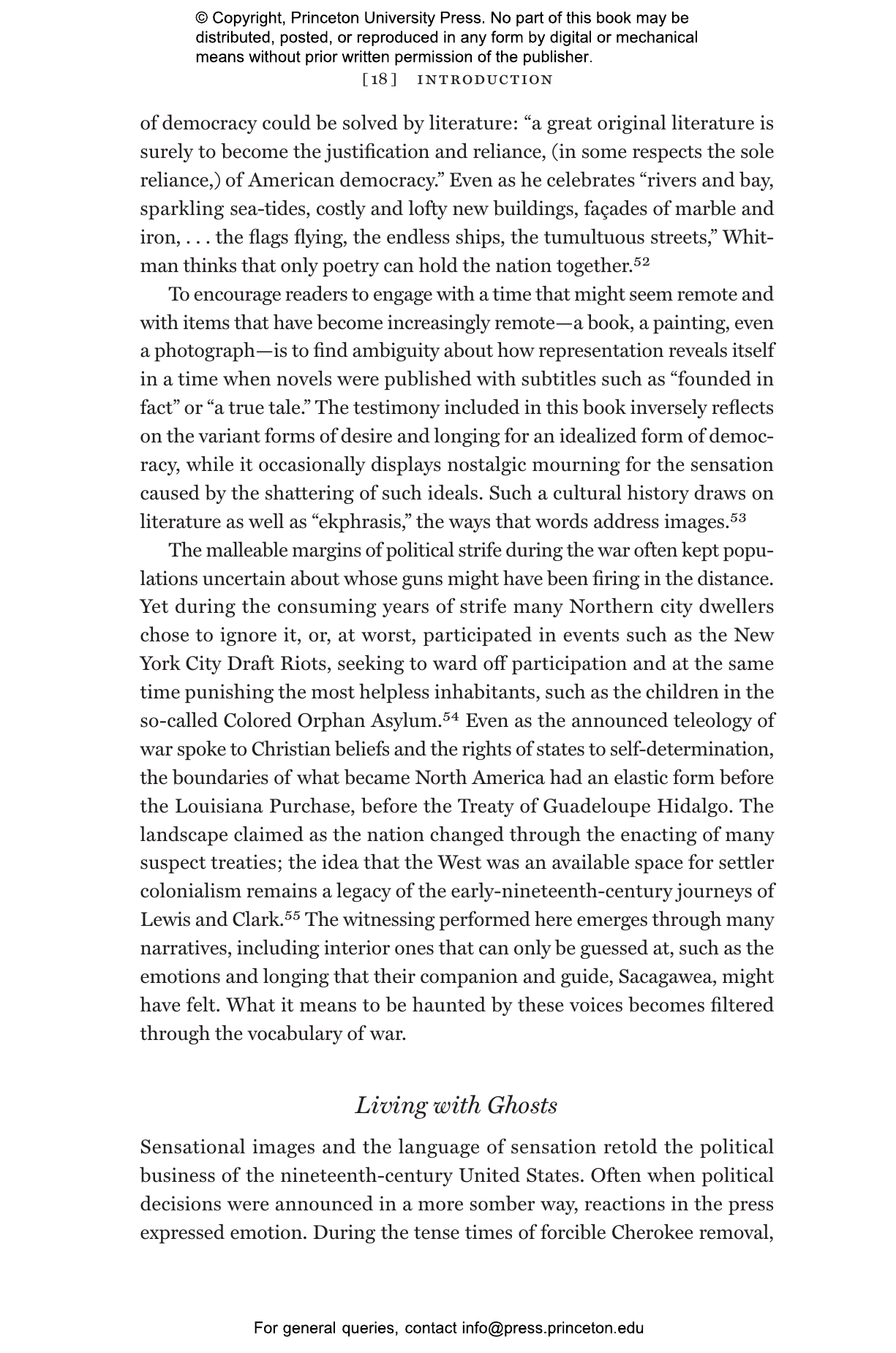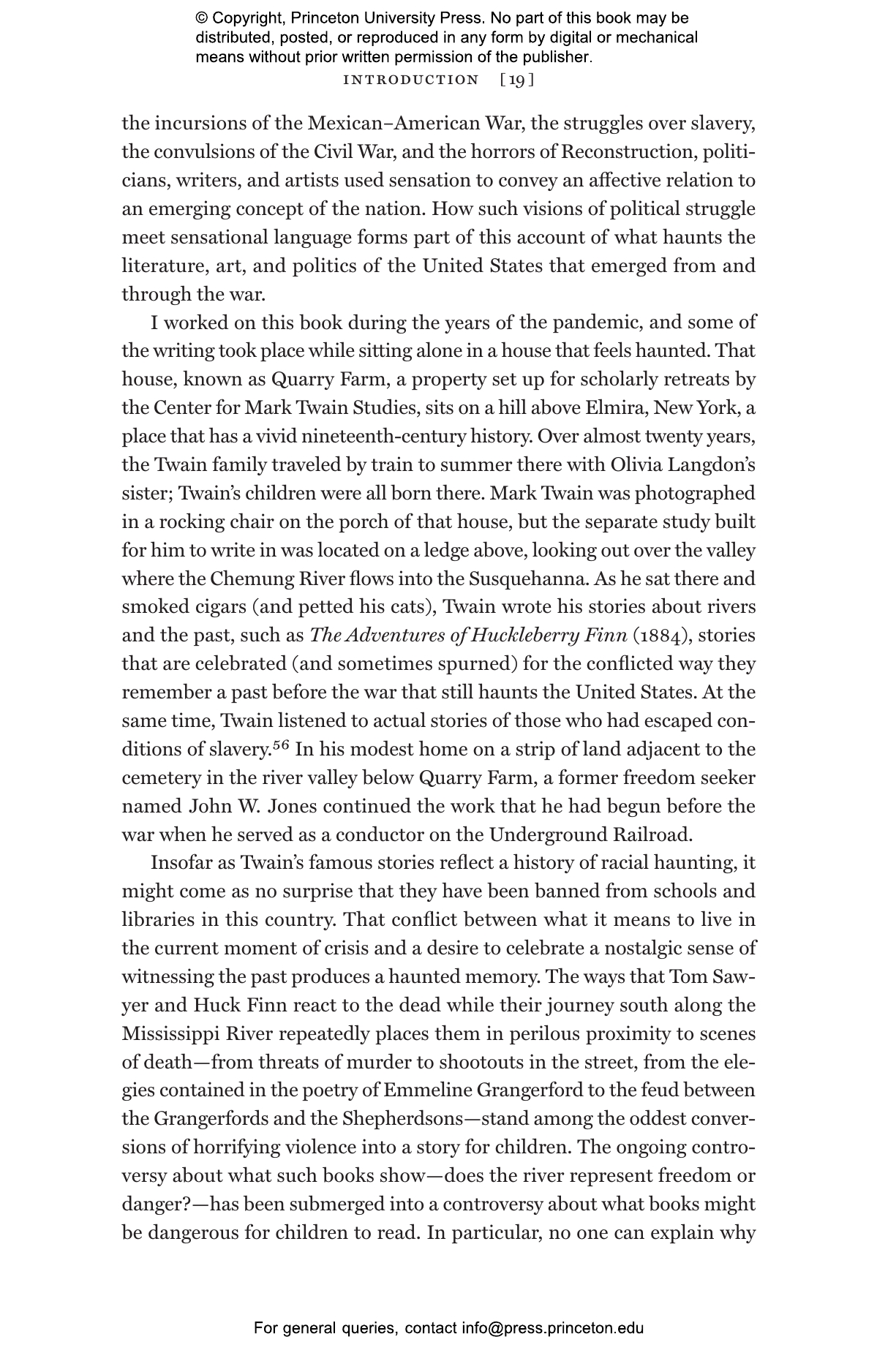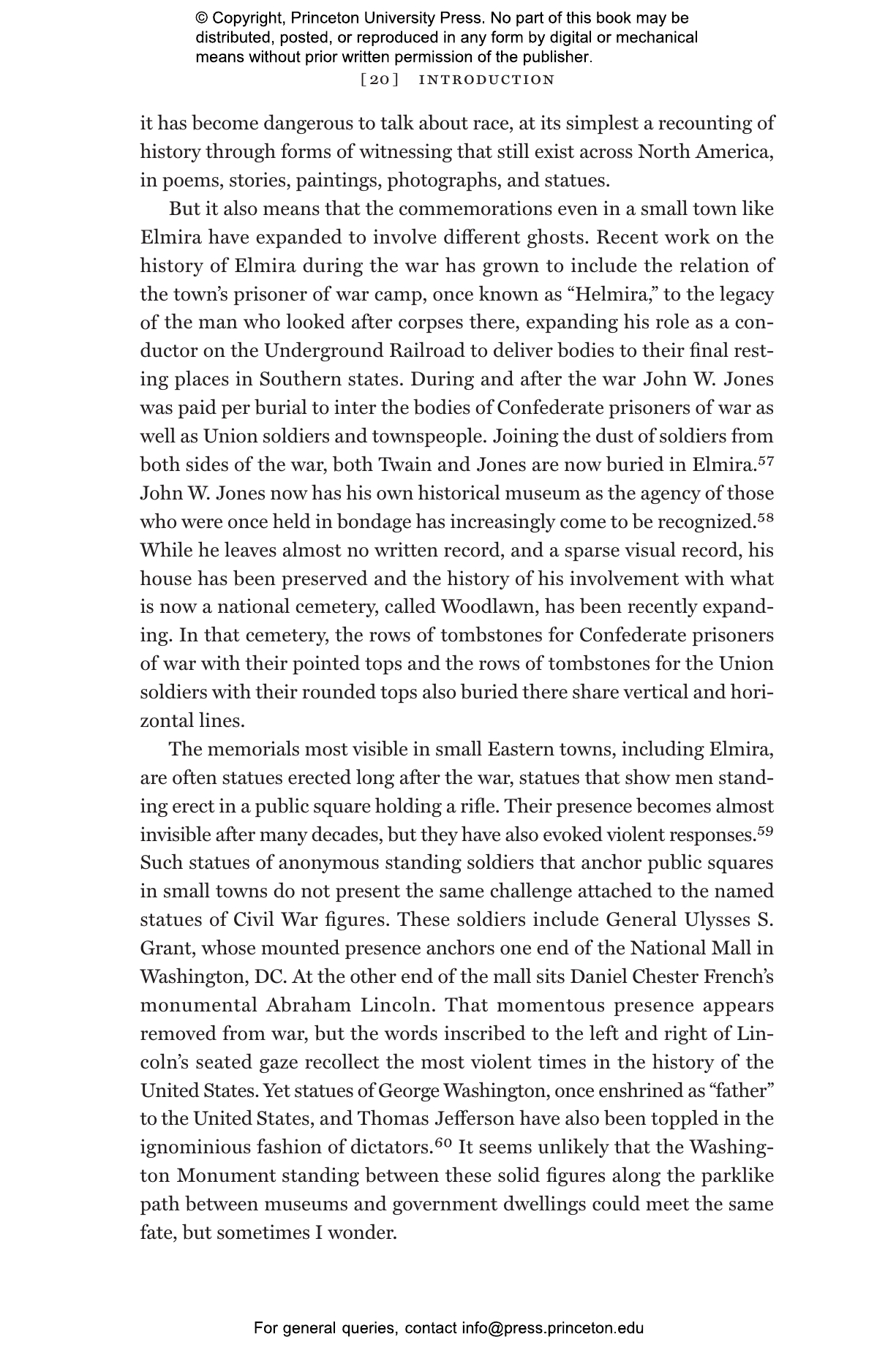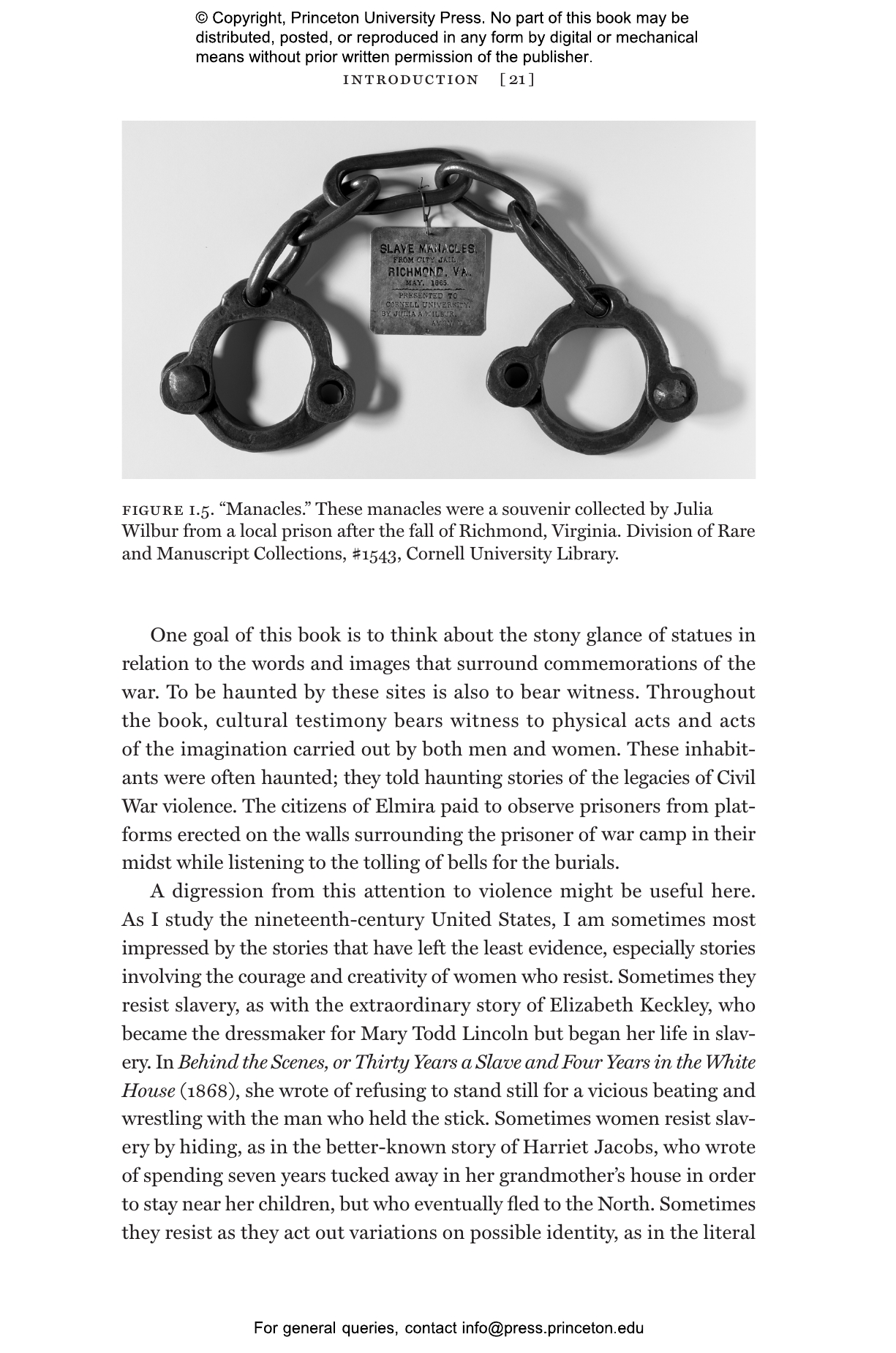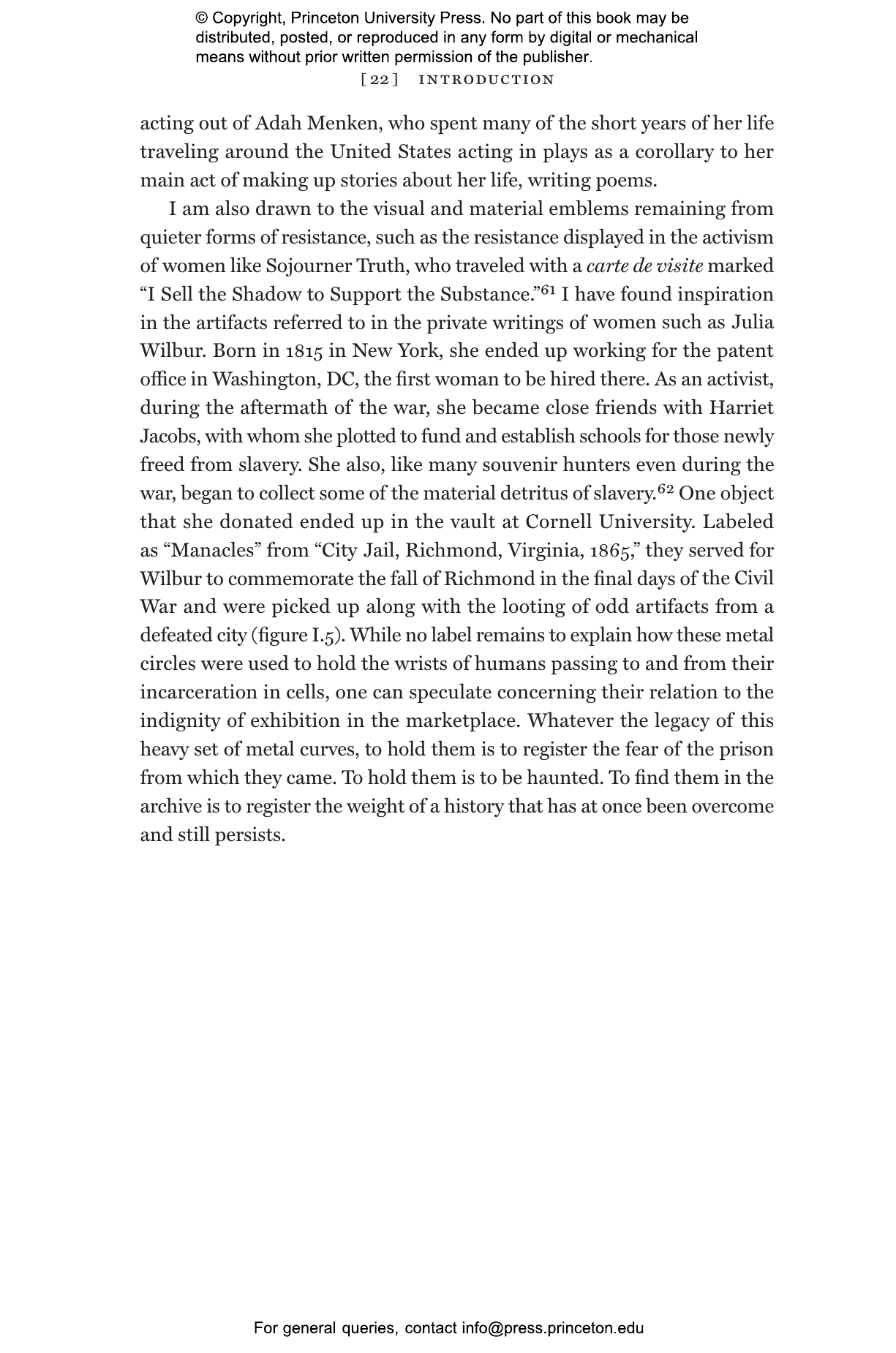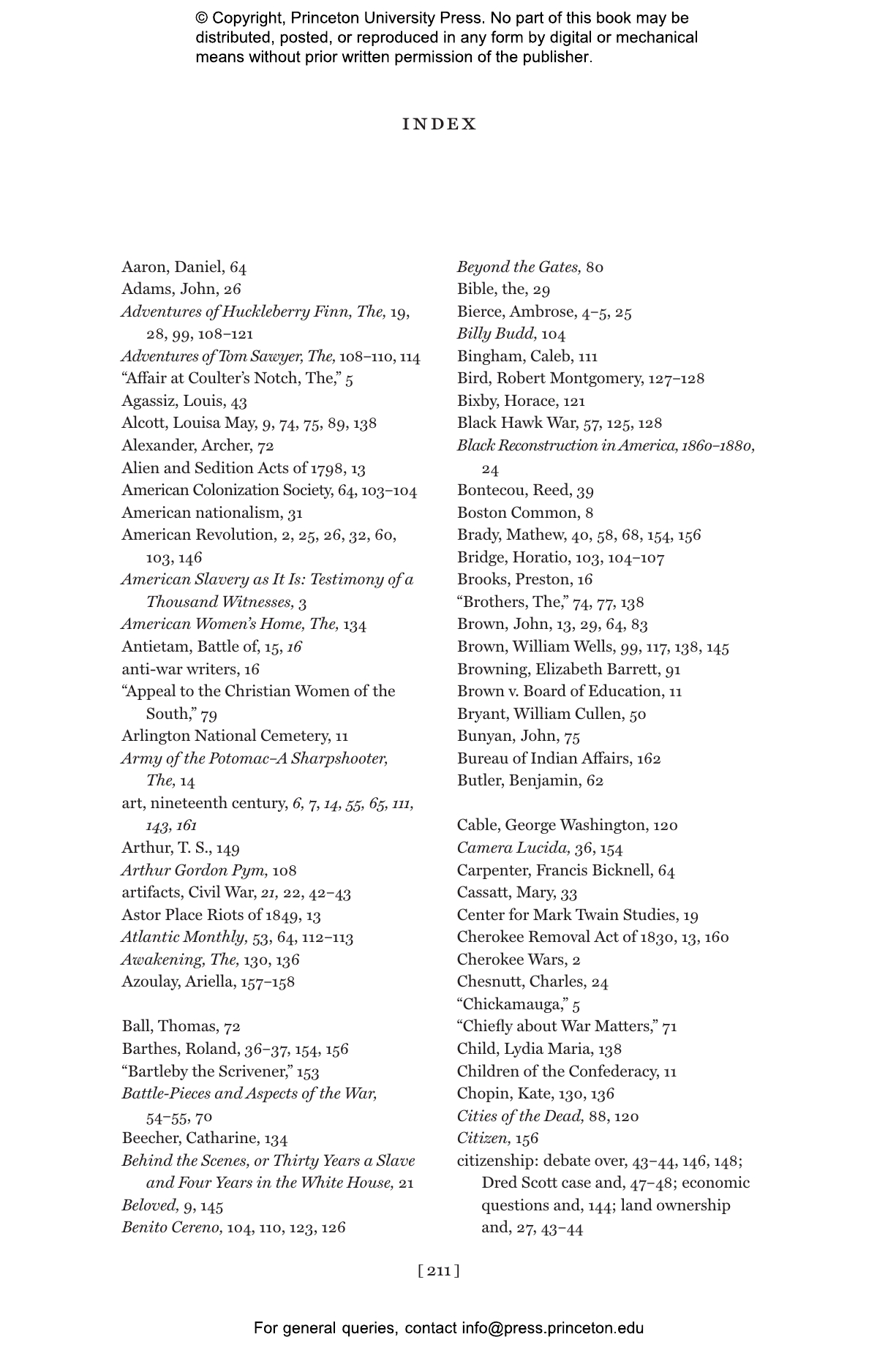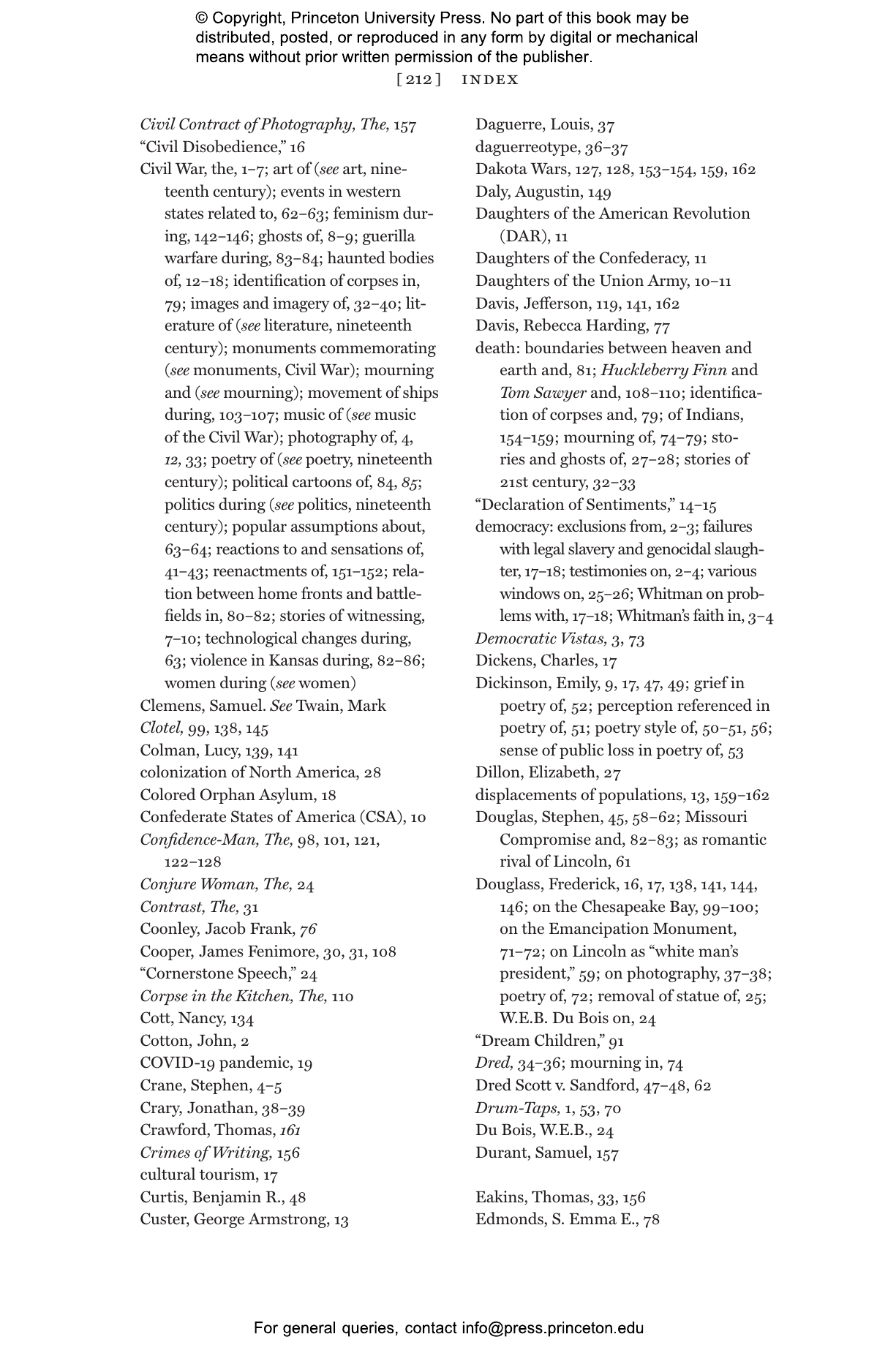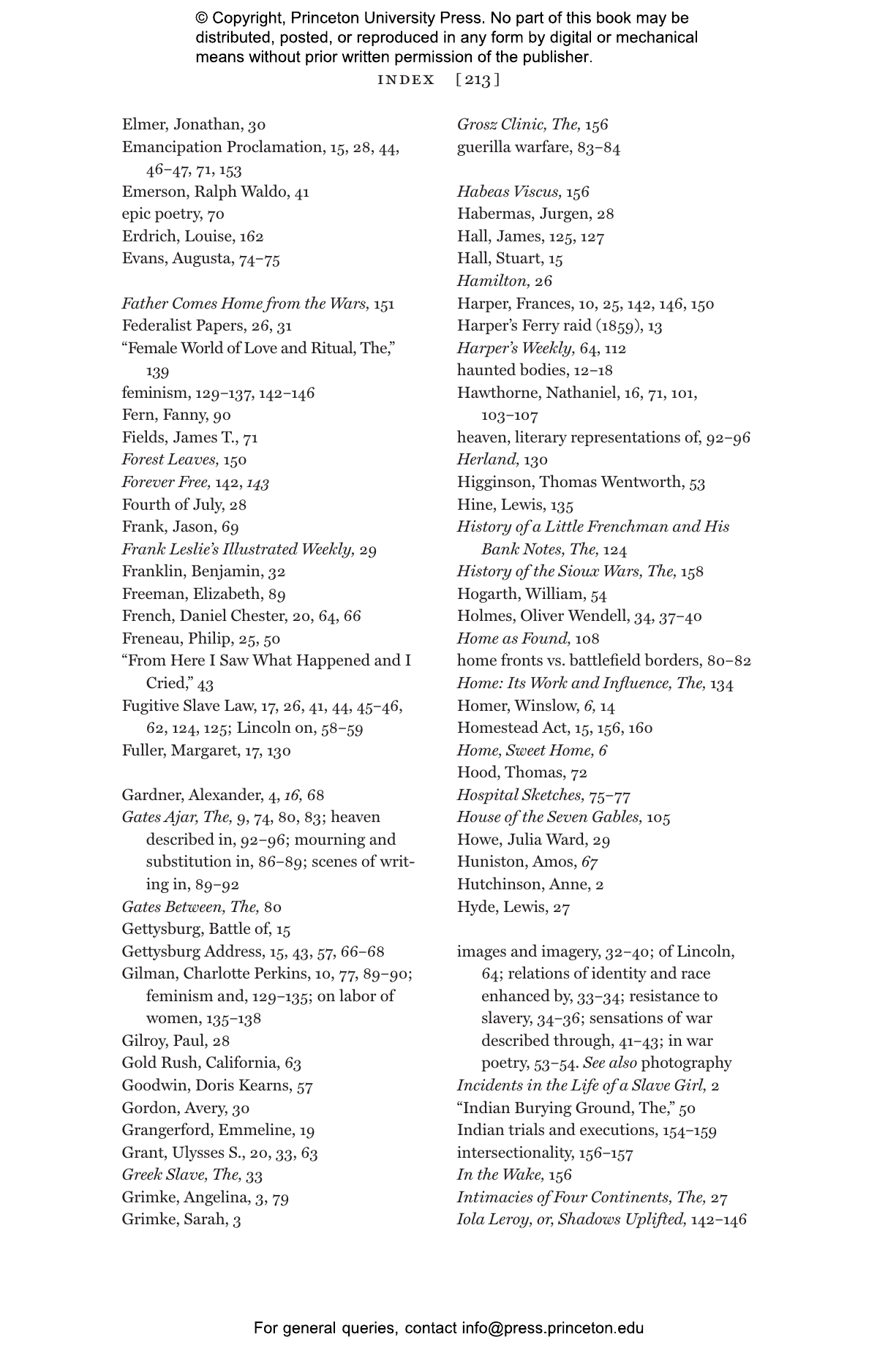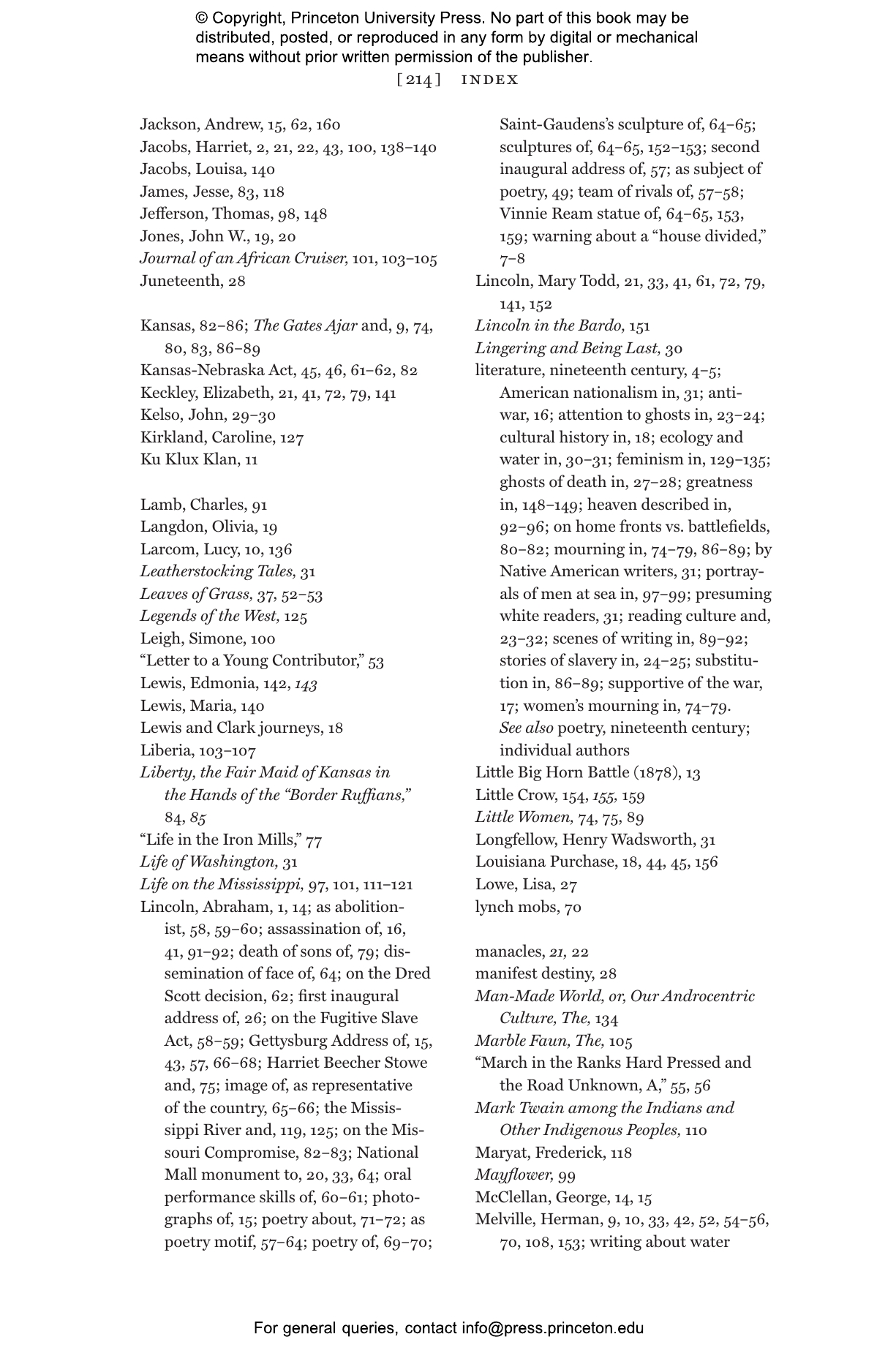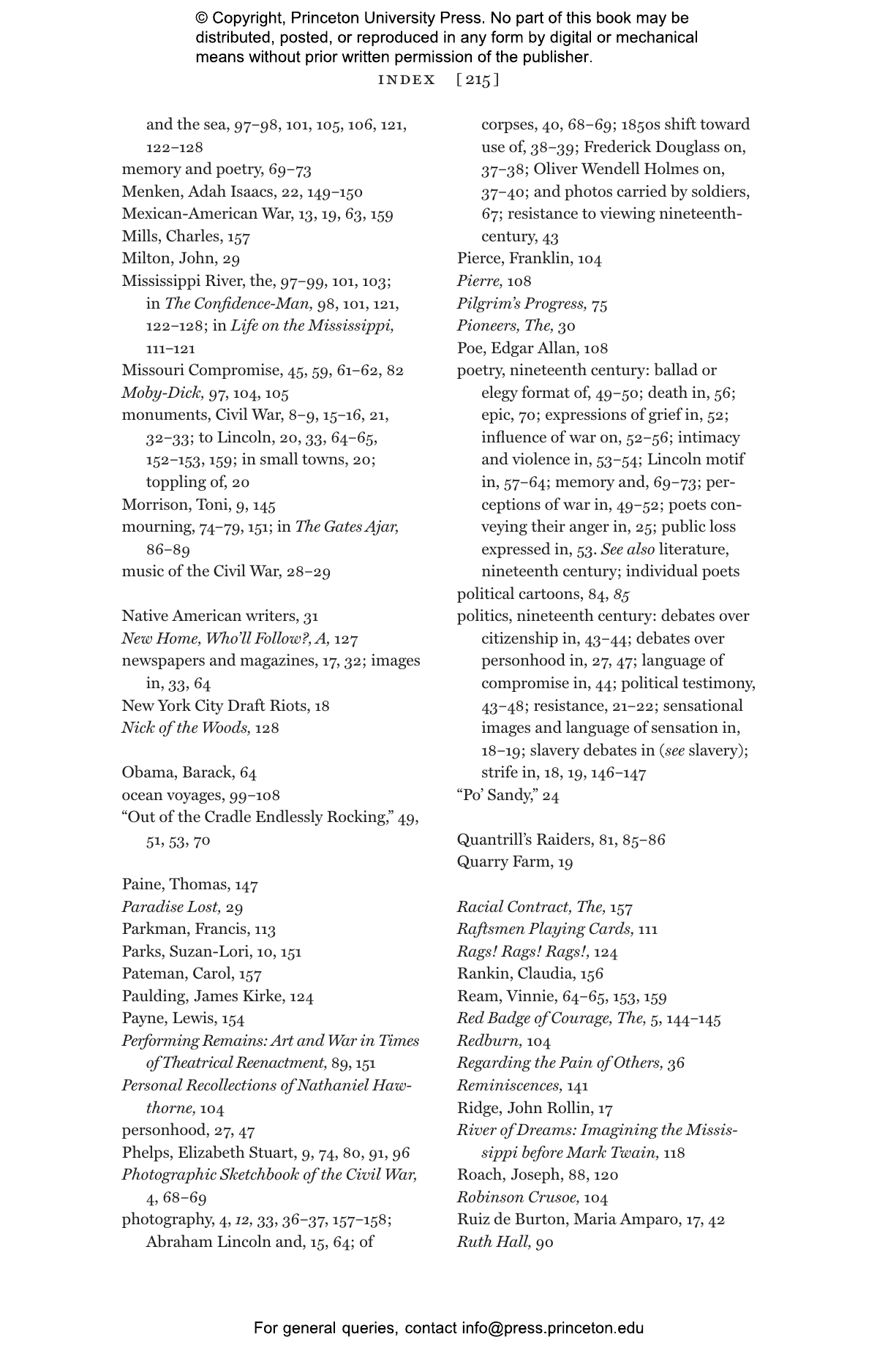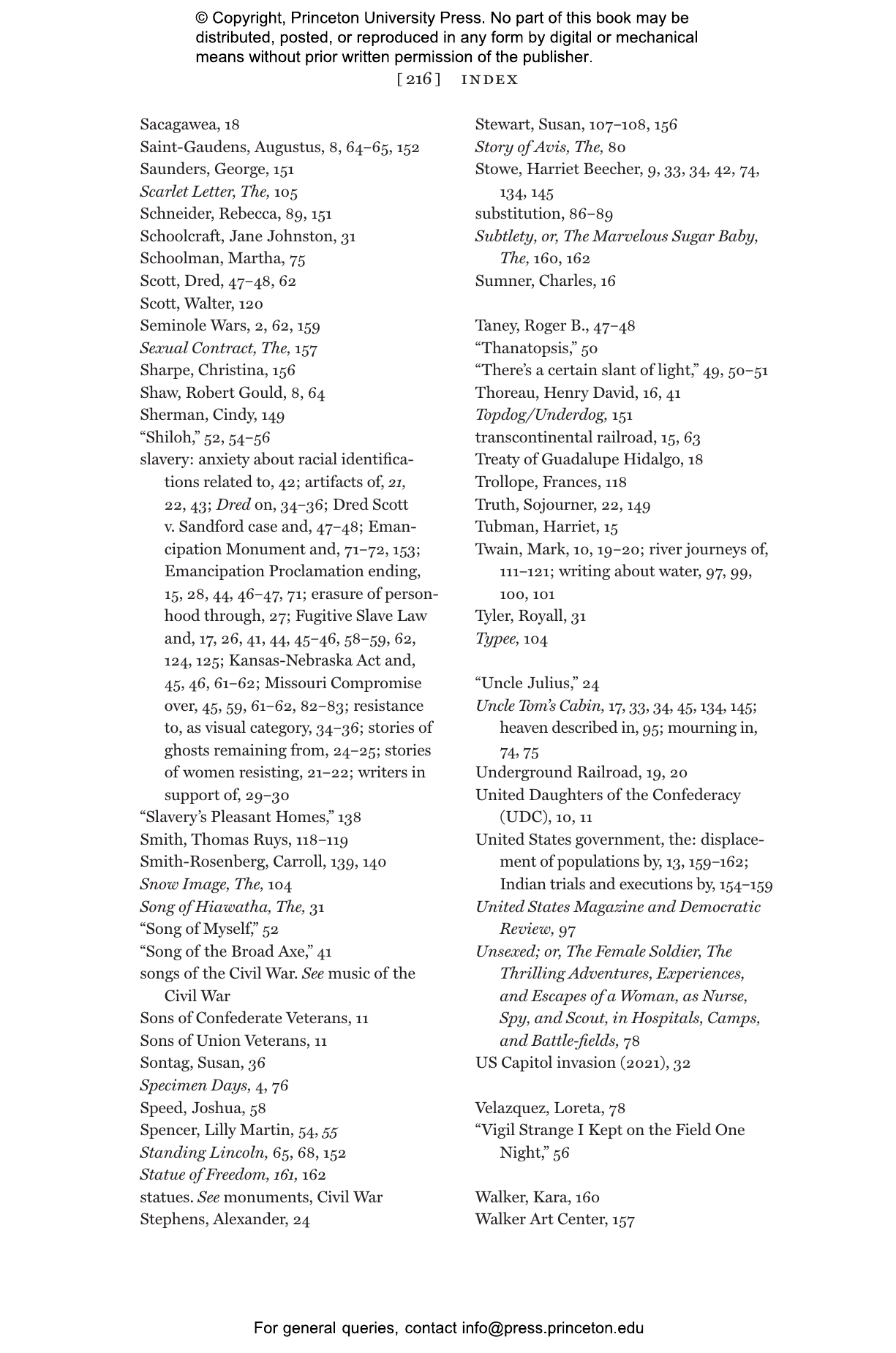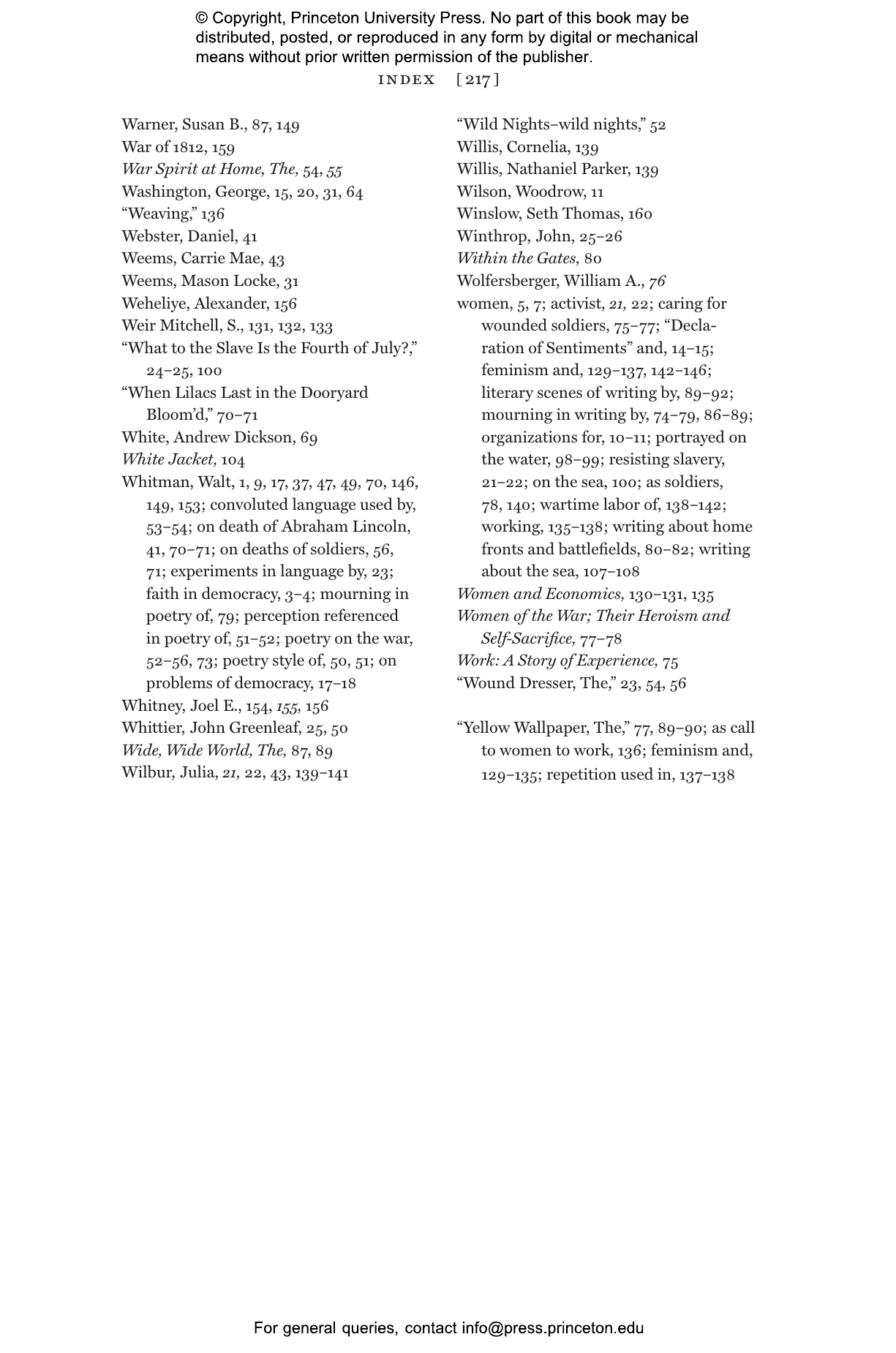In Haunted by the Civil War, Shirley Samuels explores the work of Walt Whitman, Emily Dickinson, Herman Melville, Frederick Douglass, Charlotte Perkins Gilman, and others to investigate the long cultural shadow of America’s cataclysmic sundering. Juxtaposing these texts with images—ranging from paintings by Winslow Homer to newspaper and magazine illustrations of political controversies—Samuels argues that the Civil War still haunts our attitudes toward democracy. The recent toppling of Confederate monuments, the continuing protests over racial and sexual discrimination, immigration, and Indigenous land rights: each of these forms part of the war’s legacy.
Examining the fraught deliberations about an ideal American democracy in the early republic, Samuels turns to the language of sensation in the poetry of Melville, Dickinson, and Whitman alongside Lincoln’s relation to the poetic and visual culture of his time. She considers the haunted afterlives of war in the work of Louisa May Alcott and Harriet Beecher Stowe as well as in popular nineteenth-century inspirational fiction. And she investigates the literature of men at sea (and on rivers, enabling both connection and escape), as seen in Melville and Mark Twain, while examining women’s wartime work and experience, in writings by Gilman and Frances Harper.
Why does the Civil War still haunt us? To find the answer, Samuels identifies not only the ghosts that cannot rest but also the cultural practices that name them.
Shirley Samuels is the Thomas and Dorothy Litwin Professor of American Studies at Cornell University. She is the author of Facing America: Iconography and the Civil War and Romances of the Republic: Women, the Family, and Violence in the Literature of the Early American Nation.
“Everything Shirley Samuels writes repays careful attention. Her latest book, Haunted by the Civil War, may be the crowning achievement of a very distinguished career. Demonstrating an encyclopedic knowledge of both primary texts and a massive amount of scholarship, Samuels explores the multiple ways in which the Civil War has haunted and continues to haunt the American psyche. Her readings of the complexities and contradictions embedded in the war’s literary and cultural artifacts illuminate the qualities—both tangible and abstract—that shape the creation of democratic culture in the United States.”—Alfred Bendixen, Executive Director, American Literature Association
“Why are Americans still haunted by the Civil War? Shirley Samuels offers a bold answer: because the Civil War, itself, was haunted by earlier histories of racial violence and exclusion from democracy. This exciting proposition has far-reaching implications for literary studies and US cultural history.”—Robin Bernstein, author of Freeman's Challenge: The Murder That Shook America's Original Prison for Profit
“Ambitious and engaging, Haunted by the Civil War is impressively researched and, above all, generative. Samuels continually reorients assessments of a war that never recedes.”—Kathleen Diffley, University of Iowa
“This richly illustrated study of nineteenth-century American literature shows Shirley Samuels at the top of her form, interpreting both famous and lesser-known works as products of a milieu shaped by slavery and expansionism, civil war and the challenges of democratic citizenship. Presenting the ‘cultural testimony’ of Haunted by the Civil War, Samuels connects the past to present and the visual to the literary in ways both searching and profound.”—Sandra M. Gustafson, author of Peace in the US Republic of Letters, 1840–1900
This publication has been produced to meet accepted Accessibility standards and contains various accessibility features including concise image descriptions, a table of contents, a page list to navigate to pages corresponding to the print source version, and elements such as headings for structured navigation. Appearance of the text and page layout can be modified according to the capabilities of the reading system.
Accessibility Features
-
WCAG v2.2
-
WCAG level AA
-
Table of contents navigation
-
Single logical reading order
-
Short alternative textual descriptions
-
Print-equivalent page numbering
-
Landmark navigation
-
Index navigation
-
Epub Accessibility Specification 1.1
-
ARIA roles provided
-
All non-decorative content supports reading without sight
-
No known hazards or warnings


